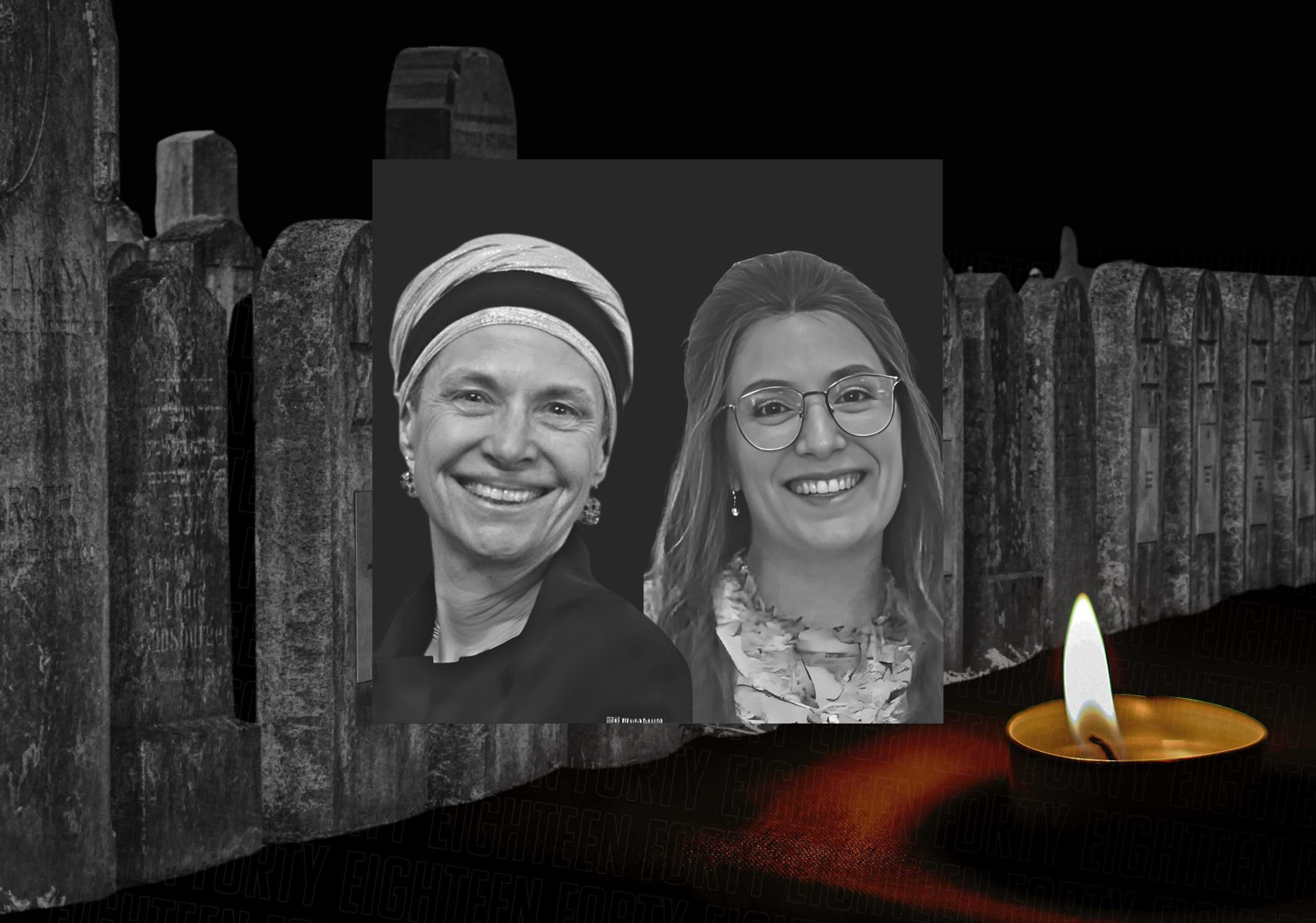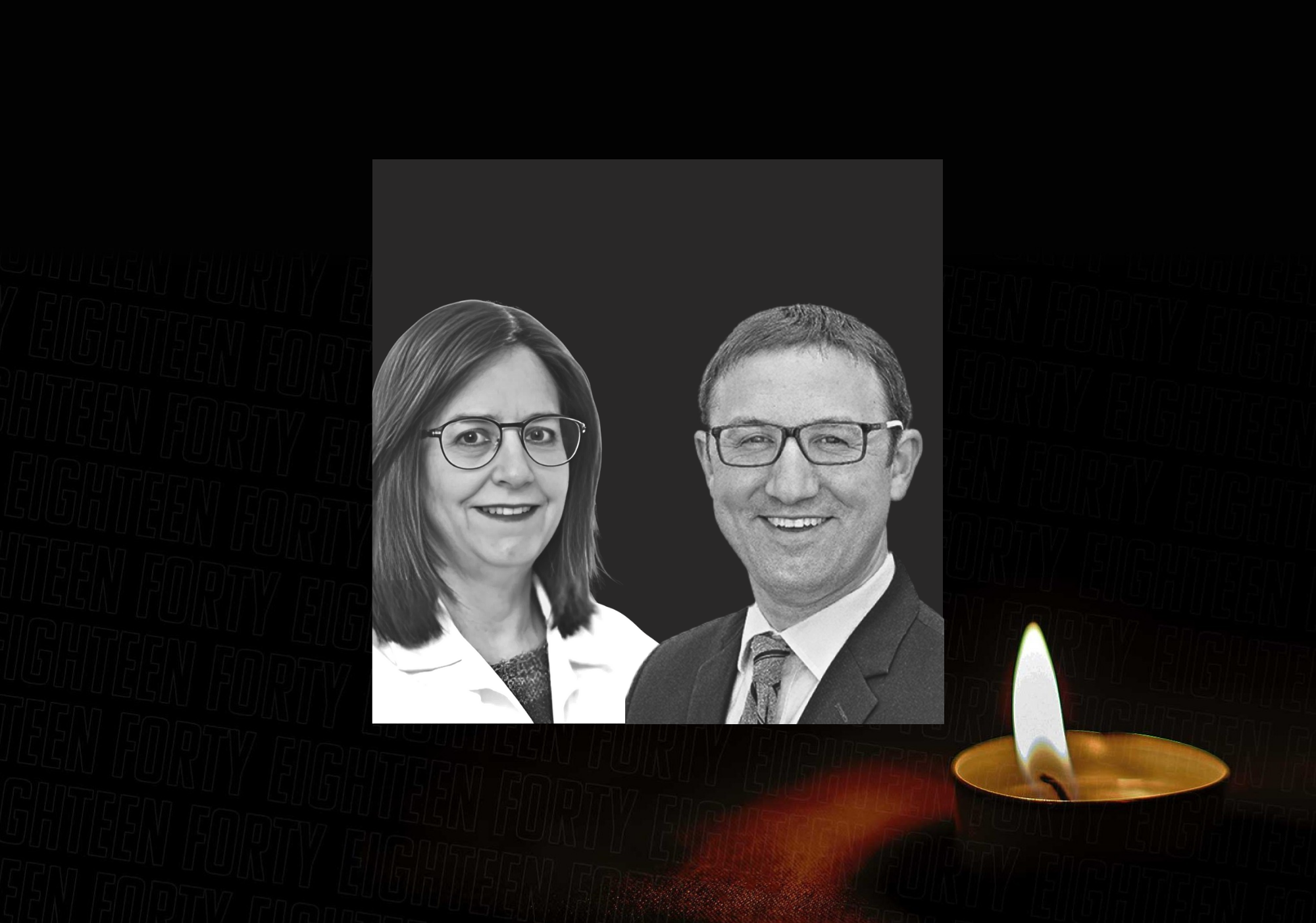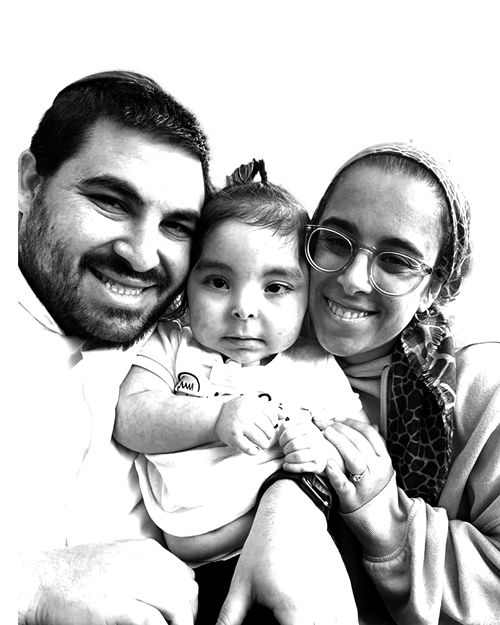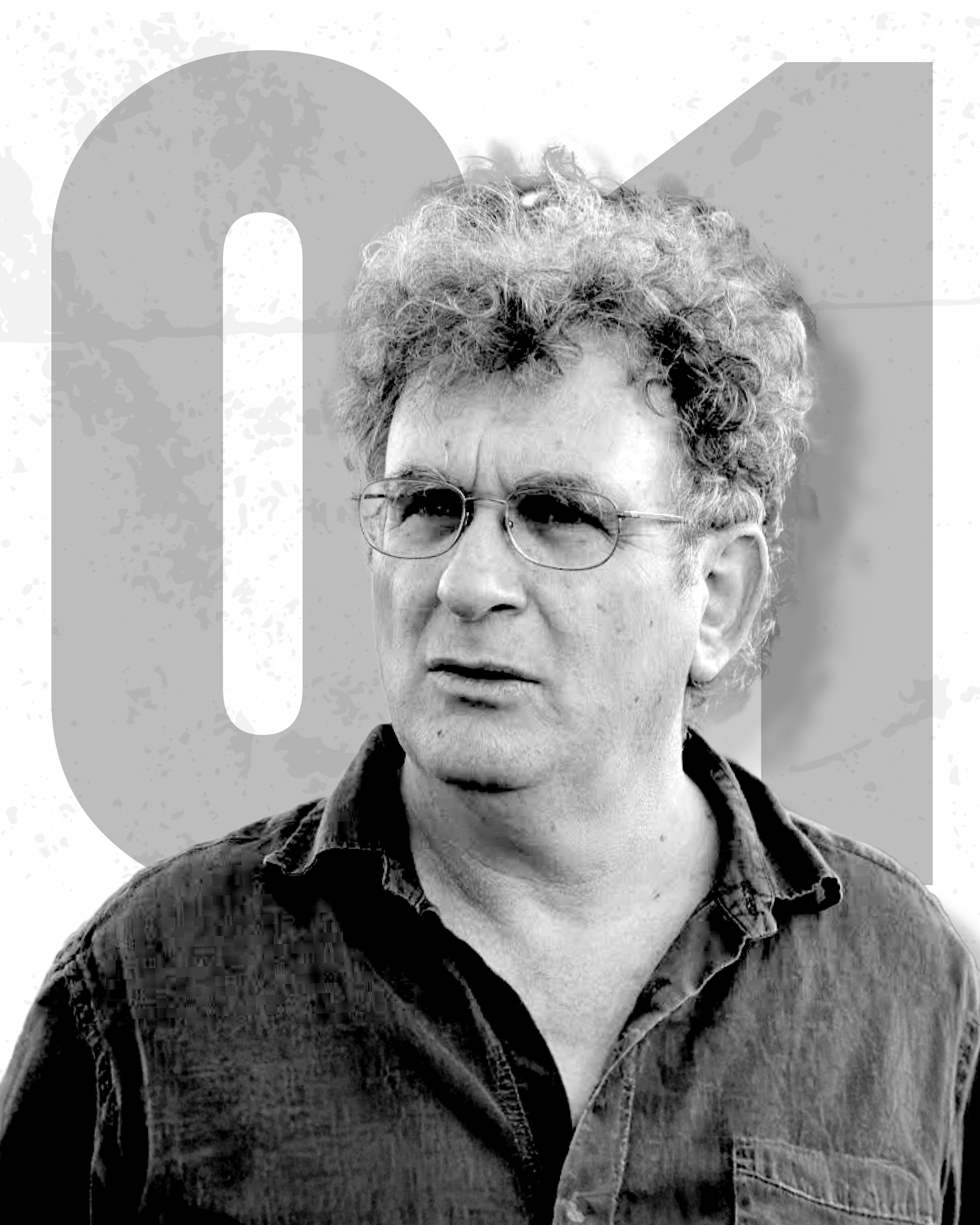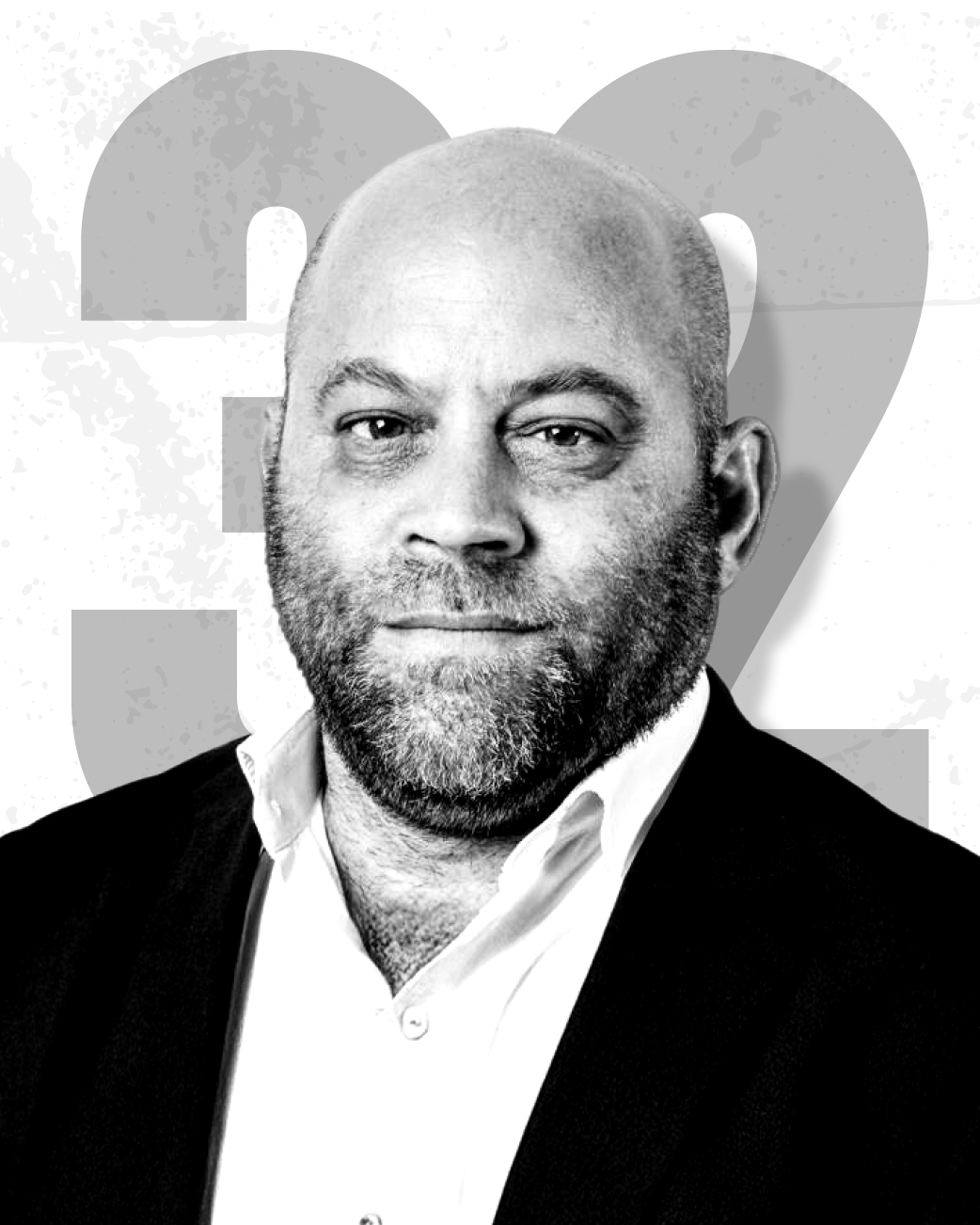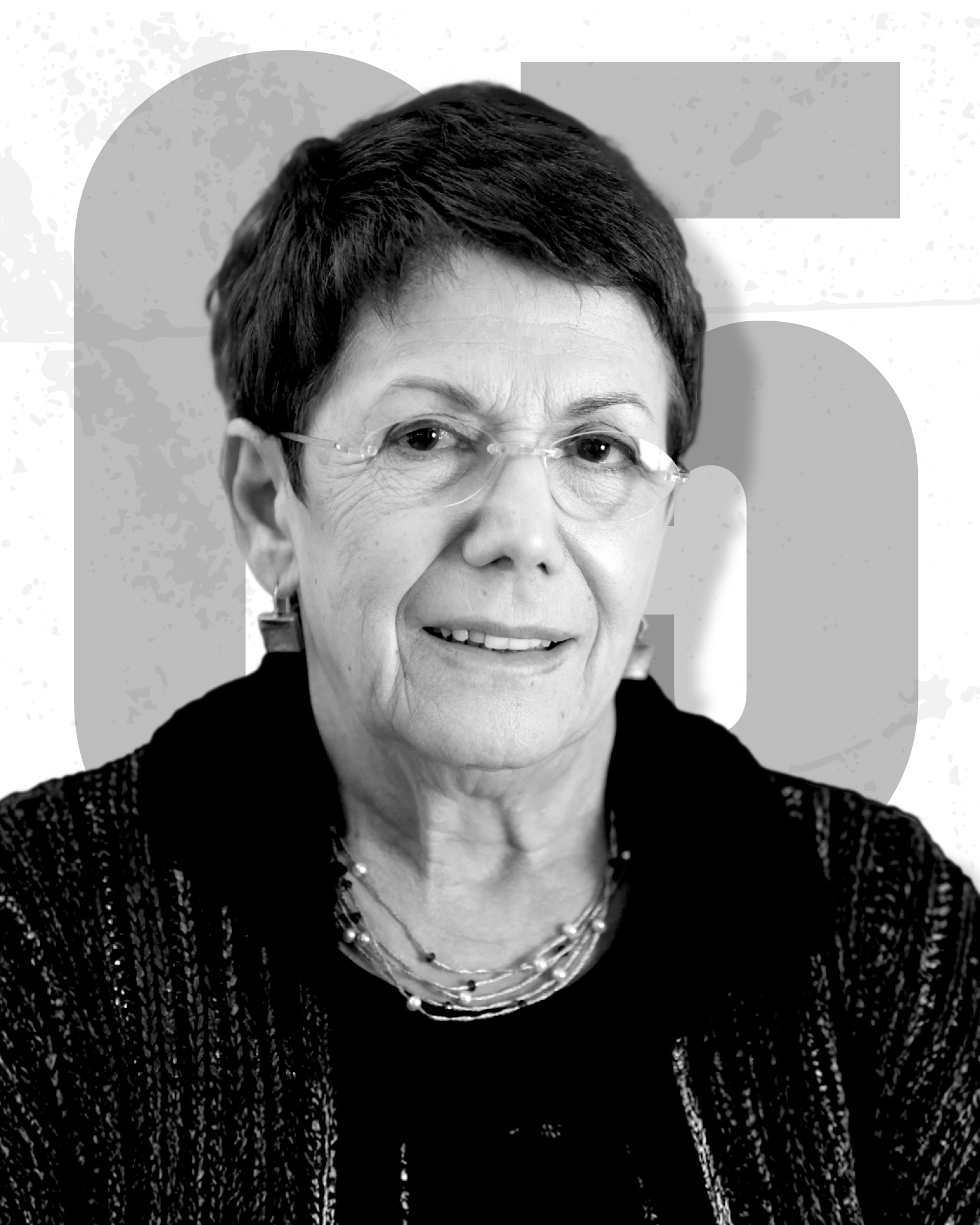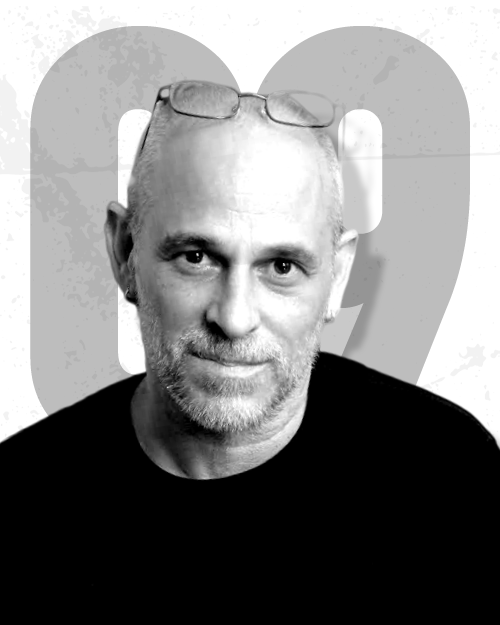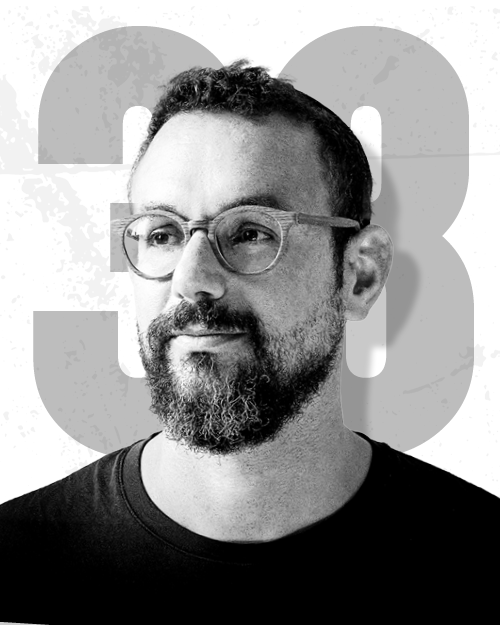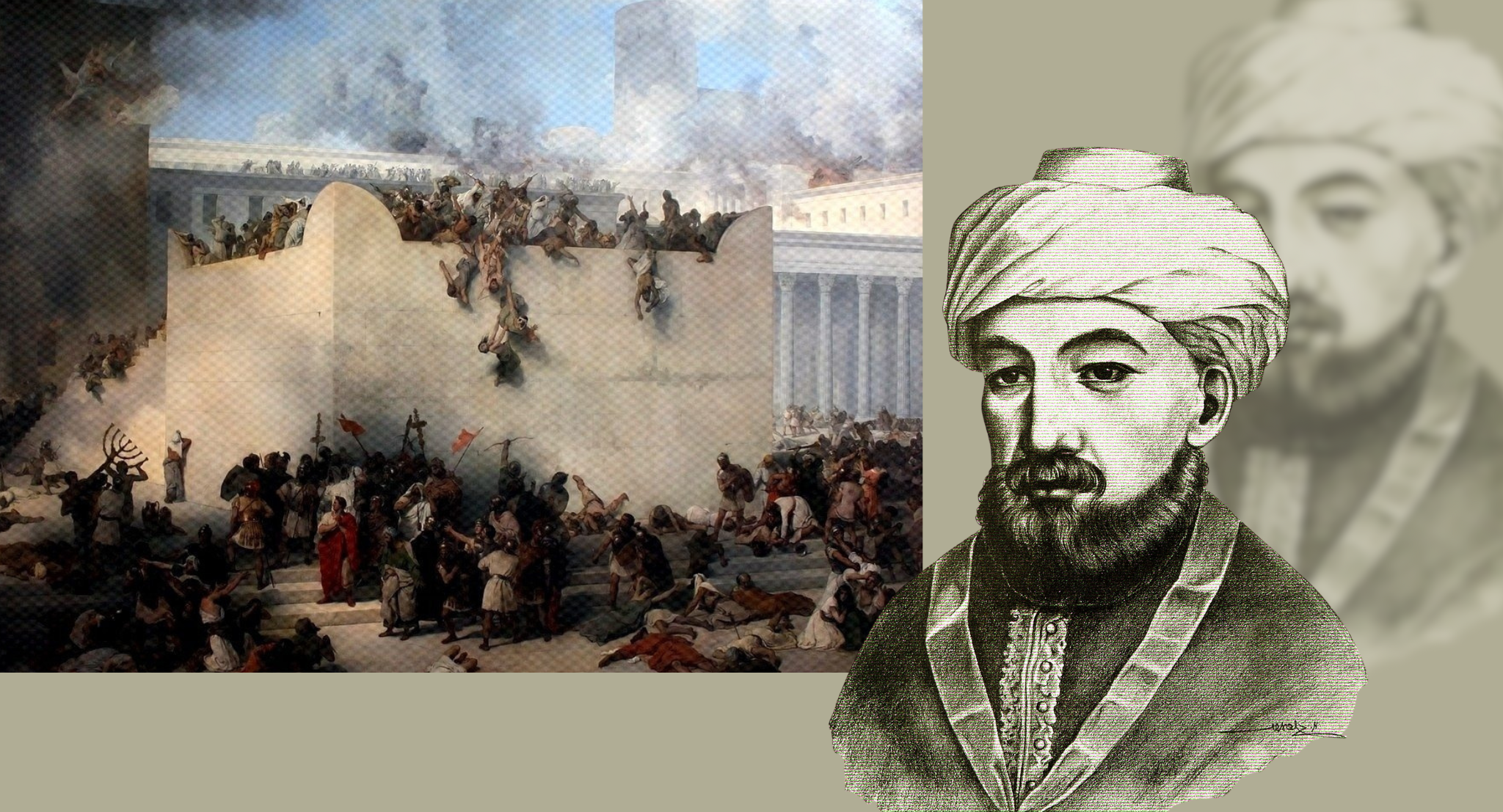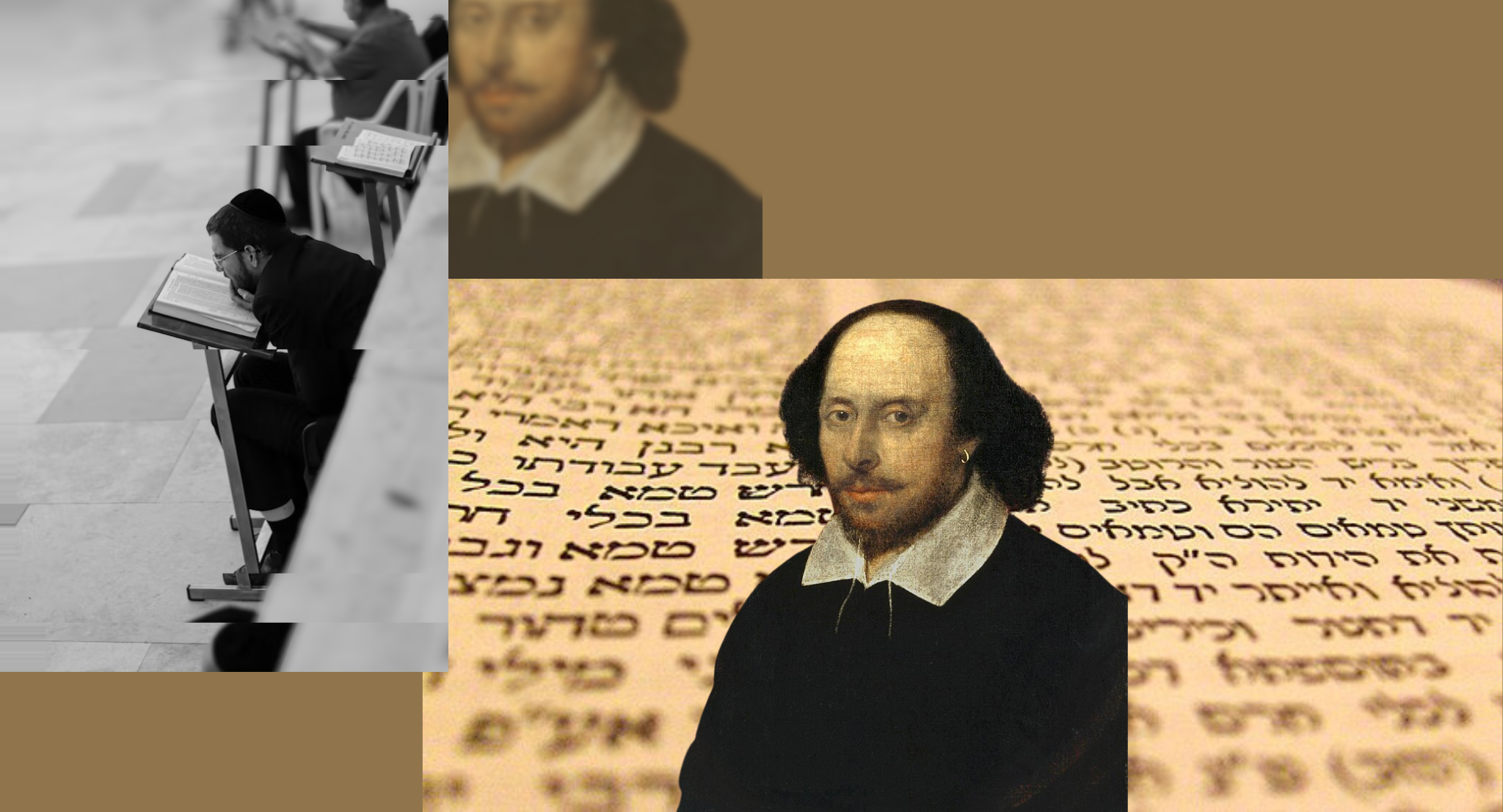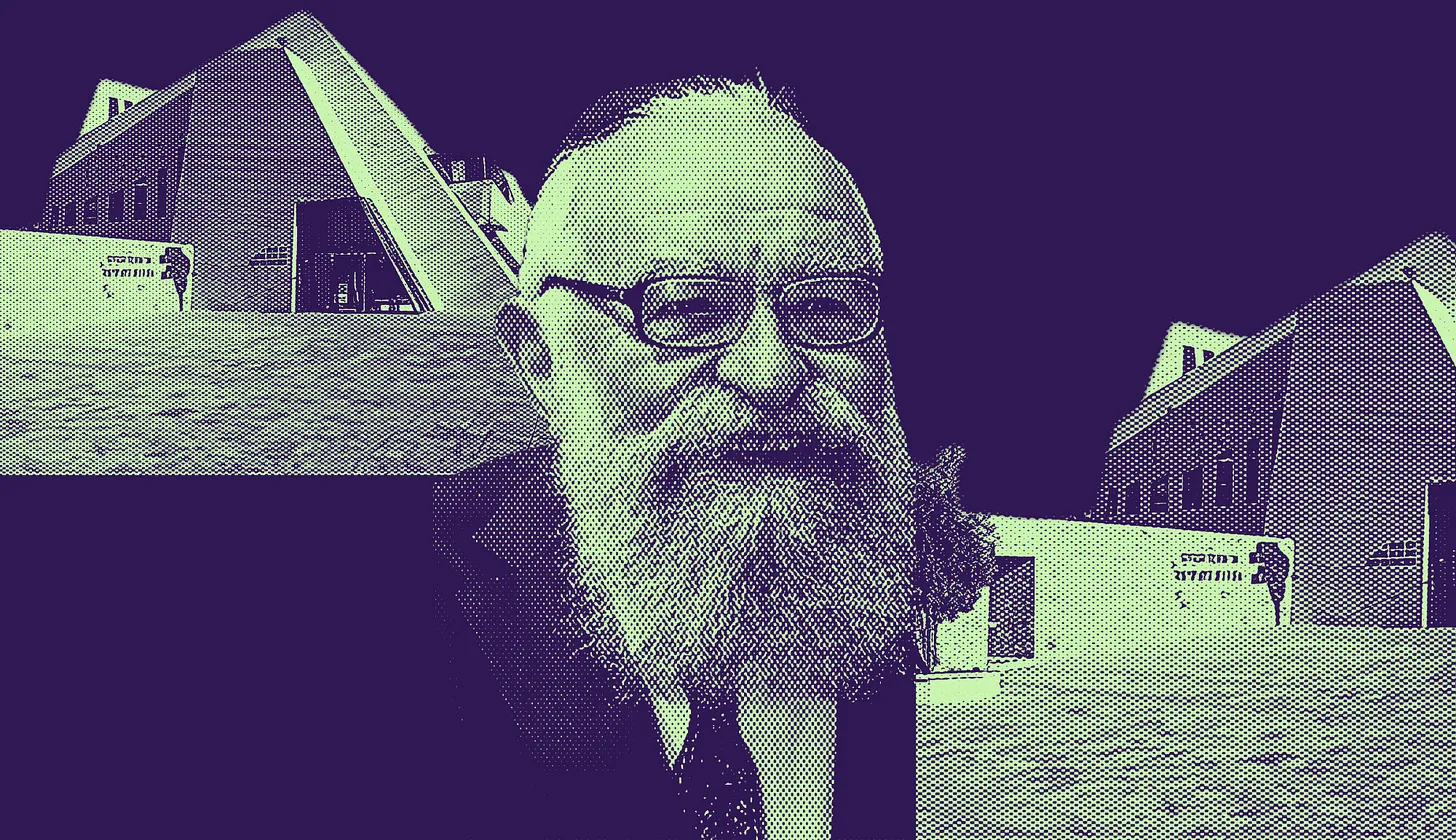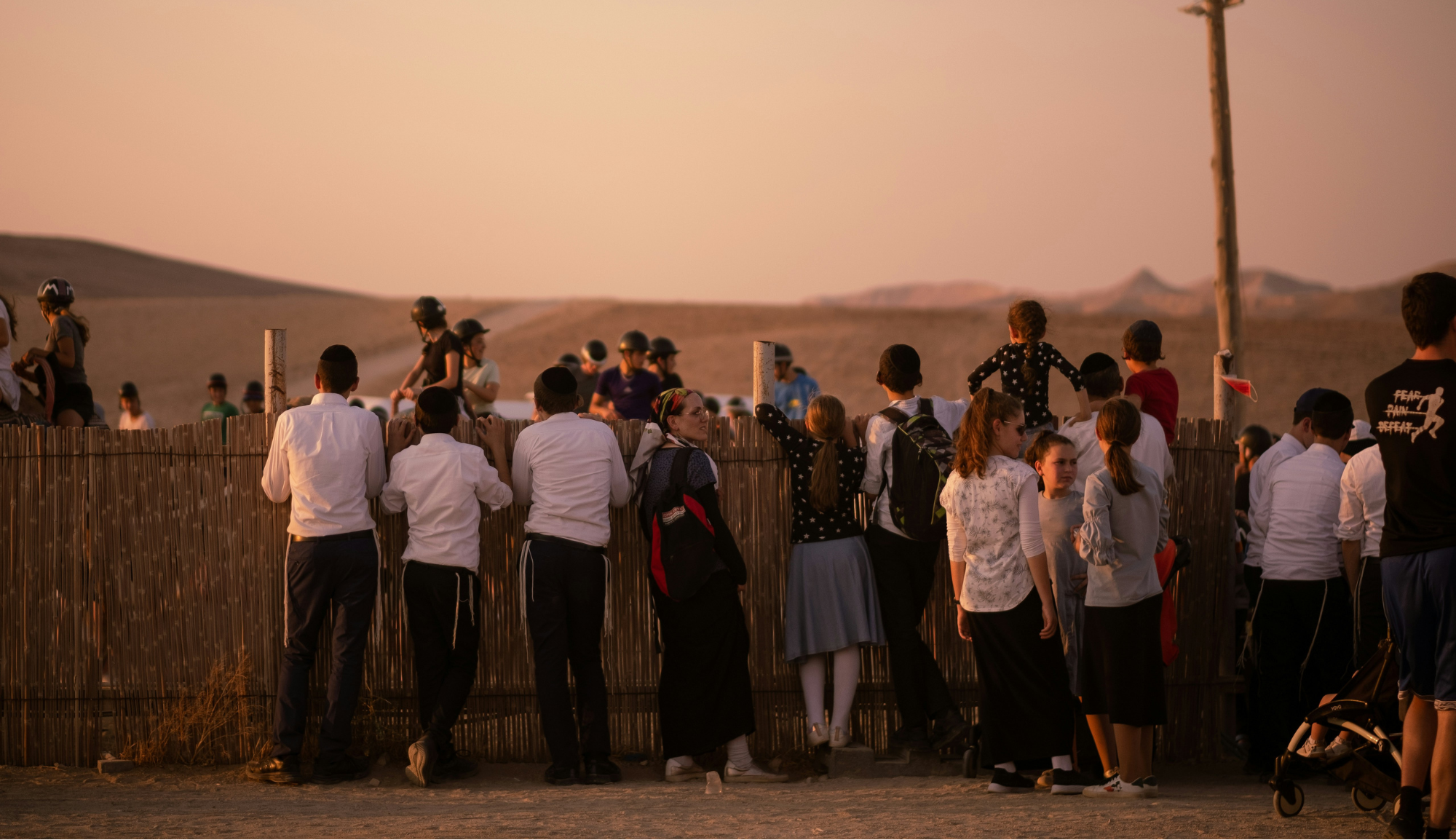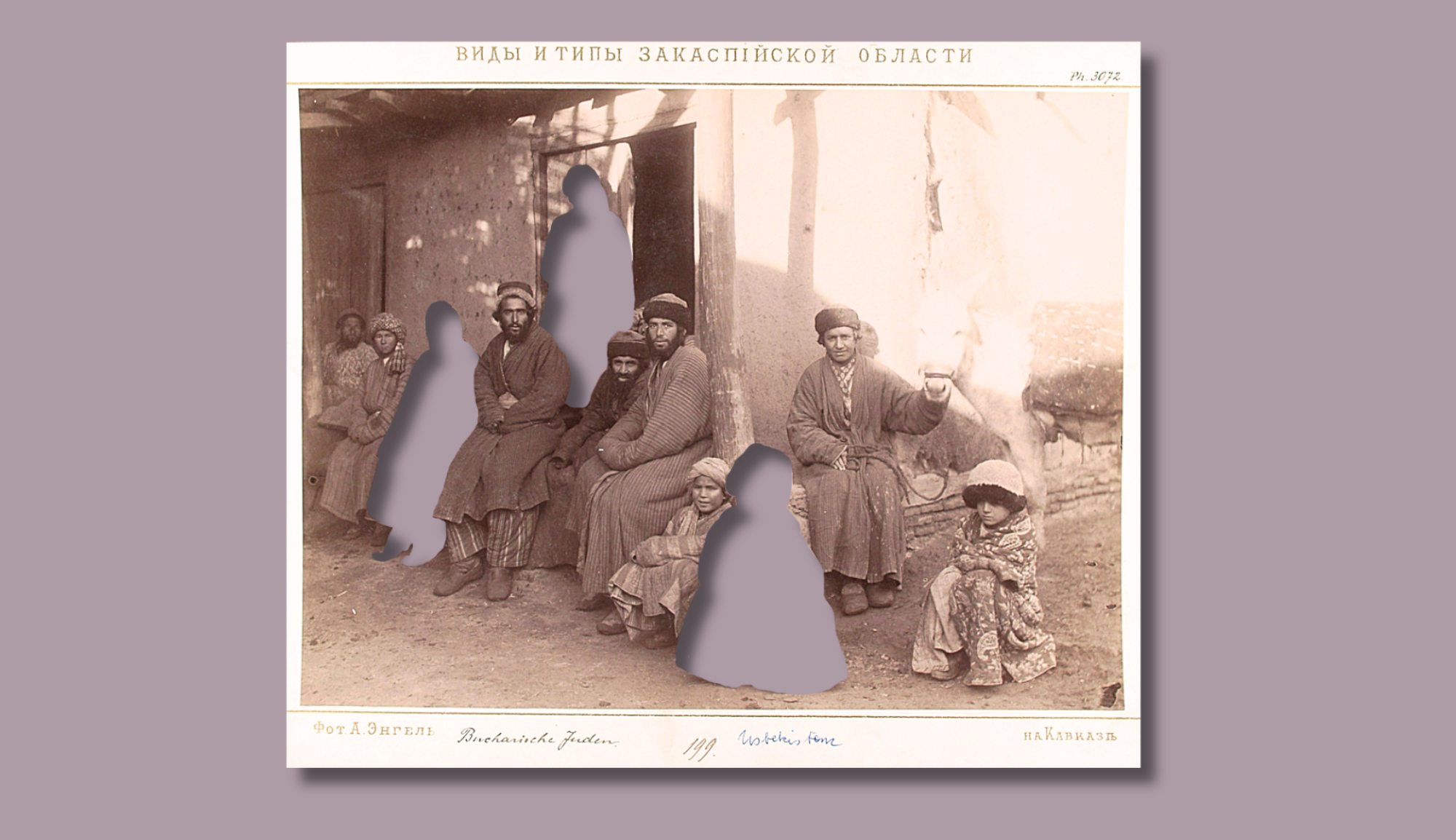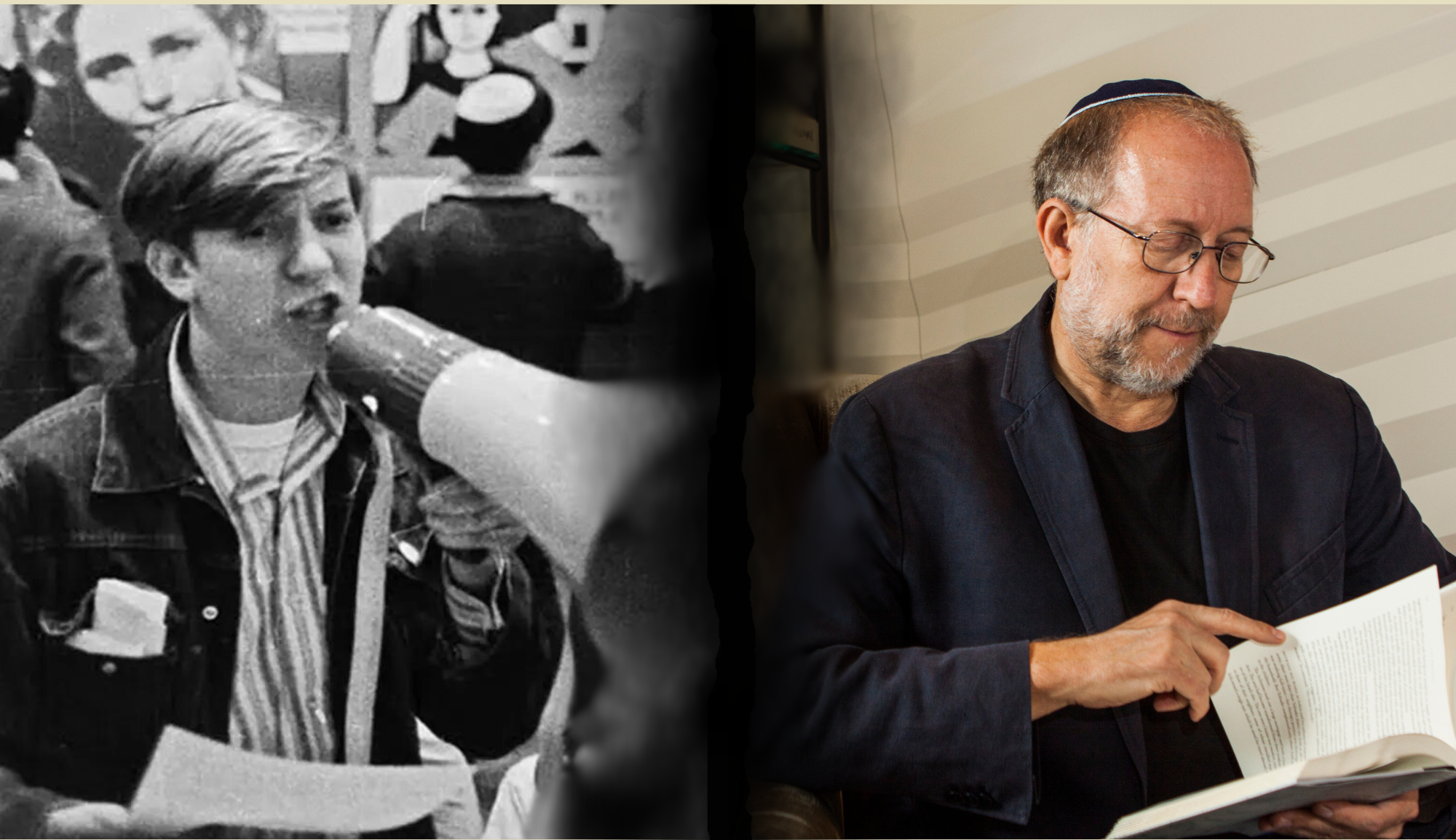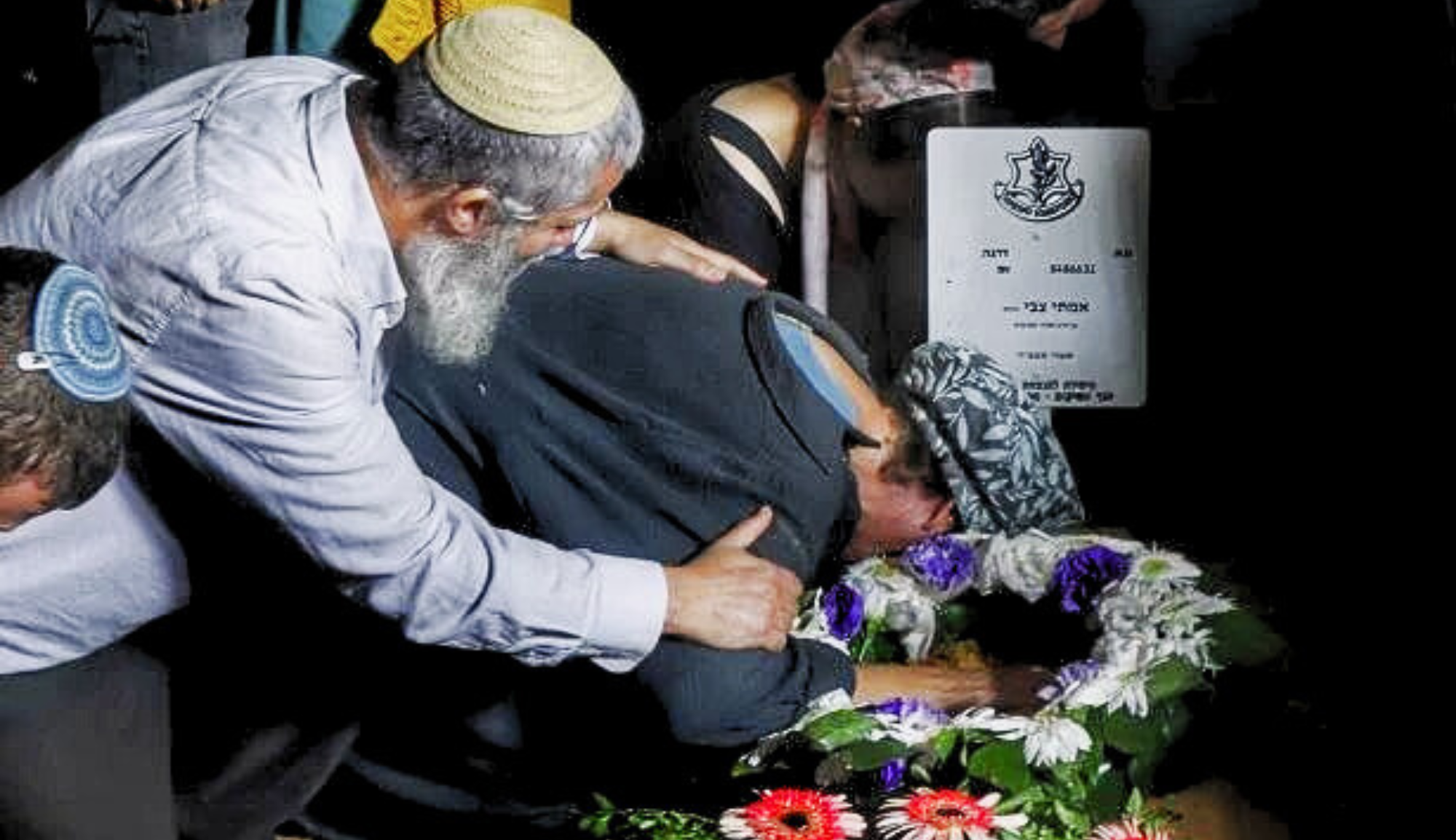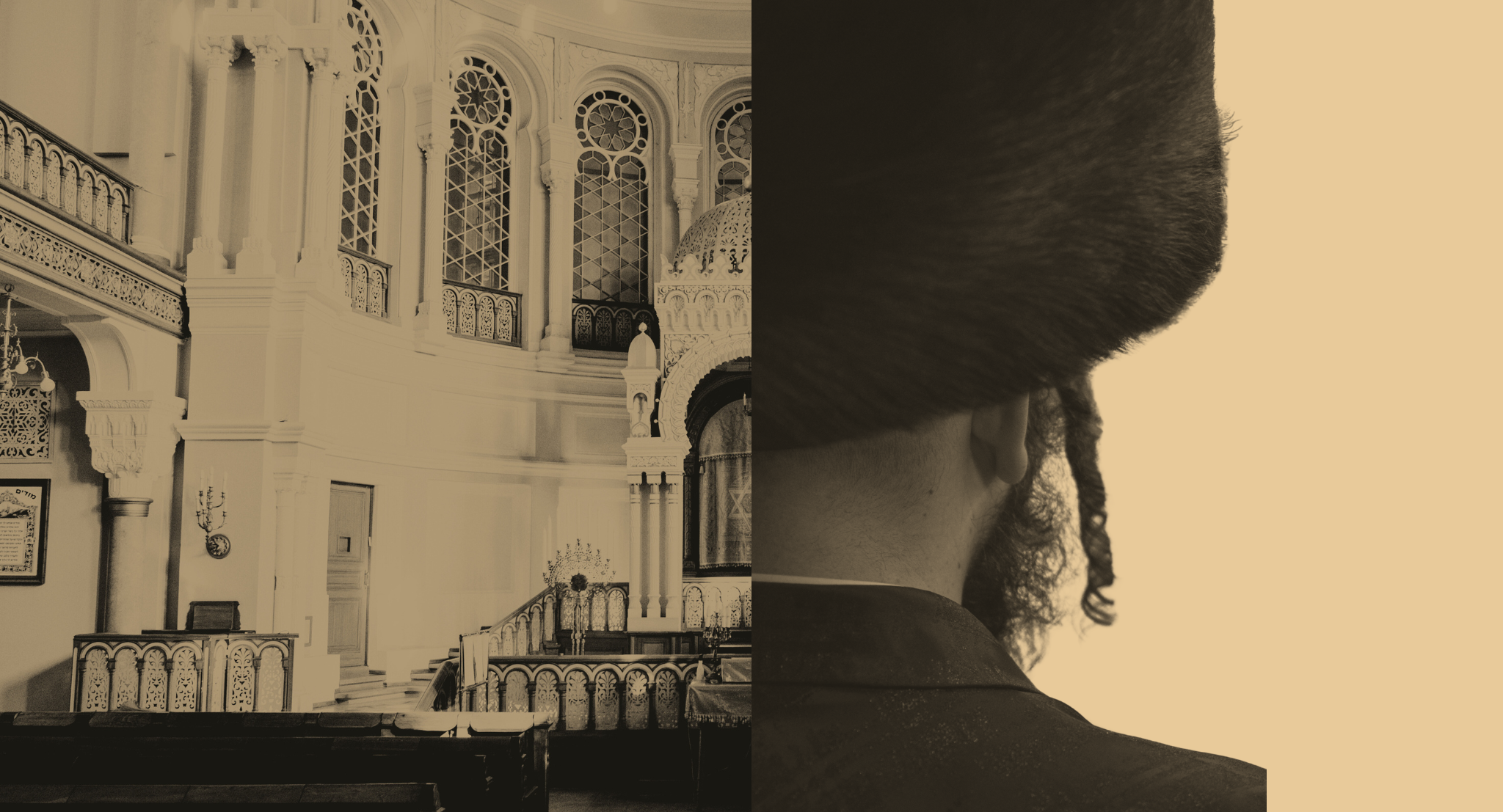Netta Barak-Corren: ‘I hope that Gaza will see a day when it is no longer ruled by Hamas’
Israel is facing several existential crises—at least three, by Netta Barak-Corren’s account.
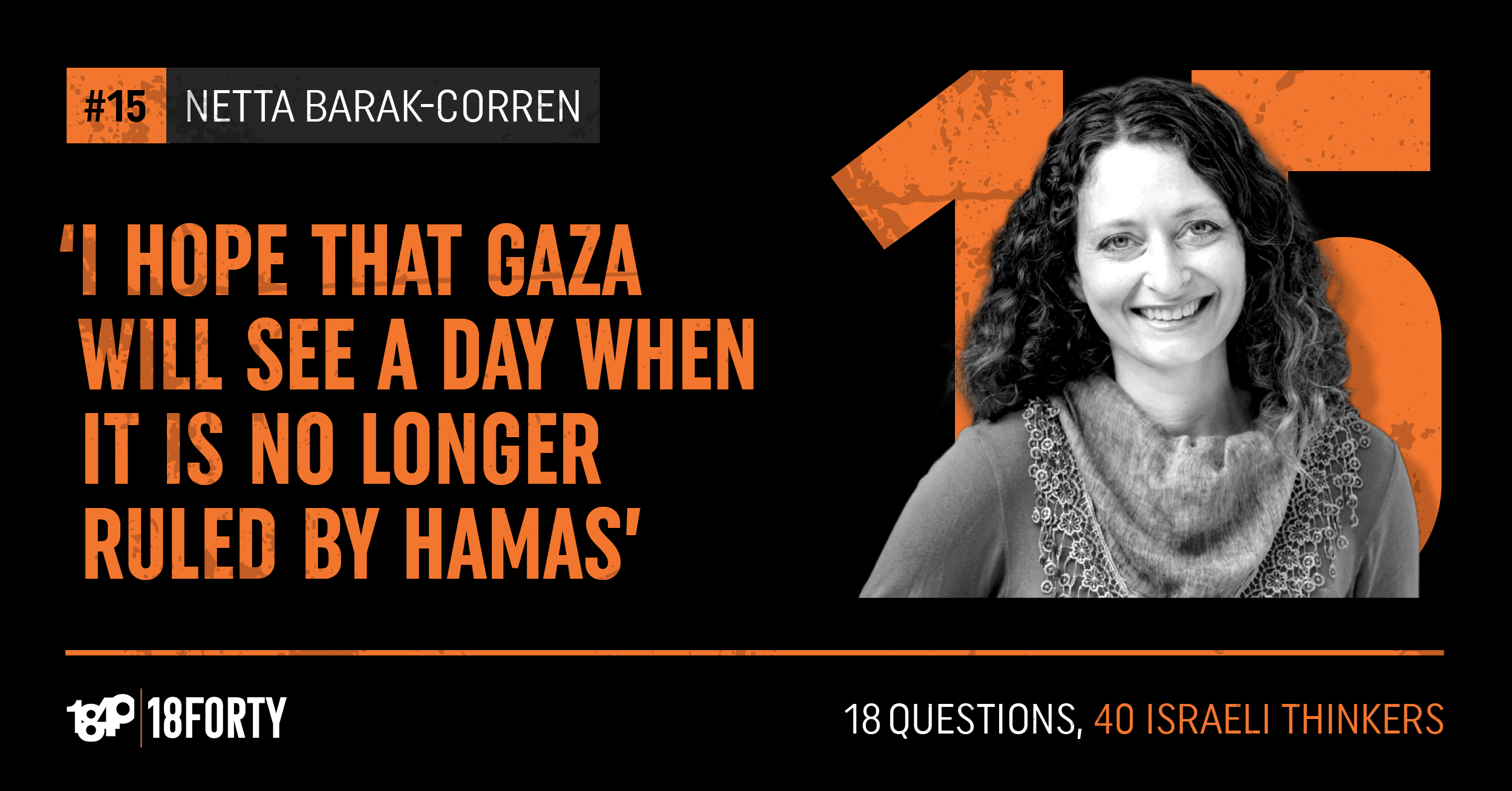
Summary
An award-winning researcher and visiting teacher and fellow at elite universities, Netta is also a cognitive scientist and seeks empirical and pragmatic resolutions in law.
- As an Israeli, and as a Jew, how are you feeling at this moment in Israeli history?
- What has been Israel’s greatest success and greatest mistake in its war against Hamas?
- How do you think Hamas views the outcome and aftermath of October 7—was it a success, in their eyes?
- What do you look for in deciding which Knesset party to vote for?
- Which is more important for Israel: Judaism or democracy?
- What role should the Israeli government have in religious matters?
- Should Israel treat its Jewish and non-Jewish citizens the same?
- Now that Israel already exists, what is the purpose of Zionism?
- Is opposing Zionism inherently antisemitic?
- Is the IDF the world’s most moral army?
- If you were making the case for Israel, where would you begin?
- Can questioning the actions of Israel’s government and army — even in the context of this war — be a valid form of love and patriotism?
- What do you think is the most legitimate criticism leveled against Israel today?
- Do you think peace between Israelis and Palestinians will happen within your lifetime?
- What should happen with Gaza and the Palestinian-Israeli conflict after the war?
- Do you think Israel is properly handling the Iranian threat?
- Where do you identify on Israel’s political and religious spectrum, and do you have friends on the “other side”?
- Do you have more hope or fear for Israel and the Jewish People?
Transcript
Transcripts are lightly edited—please excuse any imperfections.
Netta Barak-Corren: I think there are realistic measures that we can take in order to build effective and non-violent institutions in Gaza. It’s a huge question whether Israel is up for what it takes. It’s a huge question whether the international community is really willing to invest in making this happen. But there are very practical steps that can be taken tomorrow, could have taken a few months ago, in order to bring this reality closer to actually materialize.
Hi, my name is Netta Barak-Corren. I’m a law professor from the Hebrew University of Jerusalem, and this is 18 Questions, 40 Israeli Thinkers by 18Forty.
Sruli Fruchter: From 18Forty, this is 18 Questions, 40 Israeli Thinkers, and I’m your host, Sruli Fruchter. 18 Questions, 40 Israeli Thinkers is a podcast that interviews Israel’s leading voices to explore those critical questions people are having today on Zionism, the Israel-Hamas war, democracy, morality, Judaism, peace, Israel’s future, and so much more.
Every week, we introduce you to fresh perspectives and challenging ideas about Israel from across the political spectrum that you won’t find anywhere else. So if you’re the kind of person who wants to learn, understand, and dive deeper into Israel, then join us on our journey as we pose 18 pressing questions to the 40 Israeli journalists, scholars, and religious thinkers you need to hear from today. During Israel’s crisis of judicial reform, when the Israeli government rolled out legislation to change the checks and balances as they traditionally were between Israel’s different branches of power, different branches of government, specifically the judiciary, the Supreme Court, and the Knesset, there were many in and outside of Israel who struggled to really understand and grasp what was going on. Law is never simple, and when it’s intertwined with history, politics, and, of course, Israel, it only becomes more and more incomprehensible.
During that time, as I myself was trying to understand what was going on and trying to understand and get a better sense of what really was at stake for both the right and the left, I distinctly remember one voice that emerged with a 45-page document that was translated from Hebrew into English, breaking down all the aspects of the judicial reform with context, explanation, and history. It became a coveted resource for those trying to understand the crisis unfolding before Israel. The document, which is available online, was written by today’s Israeli thinker, Netta Barak-Corren. Netta Barak-Corren is a professor of law at the HaUniversita HaHebrew BiYerushalayim and a member of the Federman Center for the Study of Rationality.
She’s been a fellow at Princeton University and a fellow at the Pepperdine University School of Law. She’s taught at the law school for UChicago, for UPenn, and was even a visiting fellow at Harvard. Her research and expertise dealing with the complex legal realities in Israel, specifically in a constitutional context, have really positioned her as a very important voice making some of these very abstract, complex issues accessible to the public. Her research has been awarded with many different awards, the S.Z. Cheshin Young Scholar Award, the Gorni Prize for an Outstanding Young Scholar in Public Law, legal research, and many, many more. Our conversation was very illuminating in a variety of areas, because I think that Netta is actually the first legal scholar that we’ve had on the podcast, but in the same vein that she’s written about judicial reform to help people understand and give recommendations about how she thought the country should go about it, she, along with several other scholars, have also put together a 28-page paper to answer one of the key questions facing Israel in the war against Hamas. What happens the day after the war? It’s a question that, both in and outside of Israel, has evoked a lot of curiosity and concern and hope for Israel. And her document, along with Professor Danny Orbach, Netanel Flamer, and Harel Chorev-Halewa, they talk about Israel’s ability to achieve its goals, and that depends, quote, not only on the military and diplomatic campaign taking place these days, but also on its ability to rehabilitate and transform a nation that was led by a murderous ideology, to produce stable institutions as an Arabic culture that does not educate for Jihad, a culture that accepts the existence of the state of Israel as the nation-state of the Jewish people.
And there’s a lot of analysis that’s involved there, with post-World War II Germany and Japan, and also Iraq and Afghanistan, as unsuccessful examples. The paper more broadly talks about three different parameters for total defeat, loss of territory of Hamas, a loss of sovereignty by Hamas, and public trials for Hamas leaders and the October 7th perpetrators. There’s a wonderful article by Lahav Harkov in Jewish Insider, Lahav is actually an upcoming guest, so stay tuned, that really breaks this down and helps give thoughtful advice and information for what the future will look like for Israel, or can look like for Israel. It was really a wonderful conversation there, as you’ll see in the interview, so many points where I really had to hold myself back from falling into rabbit holes, because with 18 questions and about an hour of interview time, it does not lend itself for deep, deep, deep and thorough exploration of every single topic.
But I think we touched on a lot of amazing things, so I’m very excited for you to listen to it. And so before we go to the interview, as usual, if you have questions that you want us to ask, or guests that you want us to feature, shoot us an email at info@18forty.org, and be sure to subscribe and share with friends, so that you can stay updated with the newest episode and help us reach new listeners. Additionally, I do want to note that we will be on a short break for the Chagim, so stay tuned in about one to two weeks, when we will be returning with our 16th Israeli thinker. So without further ado, here is 18 questions with Netta Barak-Corren.
We’ll begin where we always do. As an Israeli, and as a Jew, how are you feeling at this moment in Israeli history?
Netta Barak-Corren: This is a tough moment in Israeli history, perhaps in Jewish history more generally. Many people say it may be true that this is the most foundational and deep crisis that Israel has experienced since its establishment. I think it’s very hard to draw these historical comparisons, but it’s certainly around there, if not, you know, the biggest crisis Israel has faced.
And in many ways, it’s not fully surprising. Many countries face existential crises at around this time after establishment. And we can also think about the United States in that regard. And it’s certainly one that occurs also in the middle of global turmoil, when Western democracies everywhere seem to shift and face political challenges of a different scale than they faced 10 years ago, 20 years ago, 30 years ago, and global politics change.
And so I think that it’s more than everything, it’s very uncertain. It’s a very uncertain time, and one that certainly makes it clear that we live in a period of immense challenge. And, you know, I grew up in the 90s. And back then it felt that, you know, history moves forward in a linear trajectory.
In the past, we have, you know, wars, we have slavery, women didn’t have the right to vote. In the future, we have peace agreements, we are moving forward, we have equality, and we have a lot more to reach. But the future is wide open and bright. And I think that it has become increasingly clear in the past five years or so, probably since COVID, if not before, that this is not true.
You know, we thought diseases, we thought pandemics are a thing of the past. And clearly, you know, we just forgot that they do come back at least once a century. And here we had a major global pandemic. And we forgot that wars tend to follow pandemics.
And here we are with first Ukraine and Russia. And now our huge conflict in the Middle East, it doesn’t make any sign of really ending anytime soon. And we have political turmoil that really threatens the global order, world order established after the Holocaust and World War II. And so, you know, history is certainly now moving again, in ways that we thought that are deep in the past and will not return.
Sruli Fruchter: What’s the existential crisis that you mentioned Israel’s facing now?
Netta Barak-Corren: Israel has at least three existential crisis. And I found myself working on all three of them.
Sruli Fruchter: One Jewish state, three existential crisis, is always a new catchphrase.
Netta Barak-Corren: So I think, you know, I’m probably undercounting here.
The first existential crisis is the internal existential crisis, wherein Israel has found itself in an ongoing situation of inability to reconcile social and political disagreement within Israeli society, inability to solve them in a consensual way, or at least fairly legitimately agreeable way among the different factions of Israeli life. And of course, you know, right before the October 7th war broke, what everybody talked about was the constitutional crisis and the social and political crisis that underpinned it. That’s crisis number one. And of course, you know, I’m probably grouping together a few variations of this crisis, but I would just, you know, name it for brevity, the internal crisis.
And then we have the regional crisis, which is the one that animates our, you know, and sort of engulfs our entire existence over the past year since October 7th. Israel is fighting, you know, the count changes from time to time, but something like seven different fronts, not at the same intensity, like, you know, 48 and the war of establishment, but we certainly face very challenging fronts. We have been having war with Hamas in Gaza for almost a year now. And for most of that duration of time, a day after, we’re also having a war with Hezbollah and we have attacks from Yemen and from Iran and from Iraq and Syria.
And this is an existential, it’s the closest we’ve been to existential war in a very, very long time, probably since Yom Kippur War. And even though the war has sort of like shifting and reaching new stages, it’s by no means close to really ending in a peaceful sort of, you know, way. So the regional crisis, which sort of addresses our relations with our neighbors is also very much alive and kicking. And then we have the international crisis, which is a crisis of A crisis where in the very legitimacy of Israel as a sort of sovereign nation state of the Jewish people is far from being trivial.
And to the extent that it ever was, many things that we took for granted, we can no longer take for granted. You know, I can give one example, if most of our audience, you know, leaves out of Israel, then, you know, that’s probably the crisis they know best. But people on campuses, on college campuses were not chanting two state solutions. You know, they were chanting, you know, from the river to the sea, Palestine will be free, or they were chanting, we don’t want no two states, we want all of 48.
And these chants found incredibly fertile ground among publics and communities and audiences where Israelis have taught that they have strong alliances in and, and, and strong friendships, and realize that at least some of these relationships and some of the most fundamental are not as safe and sound as they thought. And so the third crisis is a crisis of international legitimacy. And as I said, you know, at the beginning, I might be undercounting.
Sruli Fruchter: What do you think has been ‘s Israel’s greatest success and greatest mistake in the current war against Hamas?
Netta Barak-Corren: Israel had a series of, and I guess it’s hard to choose among them, very important military successes against Hamas.
Israel was able to eradicate a very large portion of Hamas’s military capabilities to essentially eliminate most of the rocket threat coming from Gaza under Hamas and under the other militant groups that acquired military rockets over the years, has been able to free a large portion of the hostages that were violently taken to Gaza on October 7th to dismantle and develop a way to dismantle the unprecedented array of underground military tunnels that Hamas had constructed, you know, unprecedented in a global scope in the history of war. So there were many military achievements during that war. Some of them are, you know, diplomatic, for example, the first hostage deal and partially military because some of the things that facilitated this deal was the military success. Obviously, Israel has not leveraged these military successes to concrete, widely acknowledged success, both substantively and in terms of how success looks like and is perceived globally and inside Israel and in the region.
Of course, probably the most painful point is, you know, the continued absence of 101, as we speak, hostages. Israeli society is still reeling over, you know, not just the atrocities of October 7th, but the continued absence that we know is accompanied with unimaginable, even conditions and torture and sexual violence towards the hostages. This is something that we can’t ignore. It might be a challenge that no country had faced in the modern era.
So there might be, you know, understandable reasons why we haven’t been able to solve it, but this cannot be counted as success. This is a hugely lacking area where we still need to do so much in order to find success. And I think strategically, and there are many things to know, but I think the biggest shortcoming is the fact that we haven’t translated, Israel hasn’t translated the military success to an actual shift in the reality on the ground in Gaza. And what I mean by that is that Hamas, and it’s important to remember that, is at least three things.
Hamas is an agenda, it’s an idea, it’s a movement. But over the past 17 years in Gaza, it also became two other things, which is a military and a pretty mighty one in terms of catering exactly to all of Israeli sort of ways of practice and finding the ways to create clever and sophisticated countermeasures to make it very hard for Israel to eliminate it. So a very effective military against Israel. And third, a governing entity.
So a government that ruled Gaza. And while Israel was focused on dismantling the military capabilities of Hamas, it did almost nothing to establish a different governing entity for Gaza. And in the absence of this entity, we see essentially a host of events going on the ground that cheap away Israeli military success. So first we see Hamas trying to reconstitute itself, has been doing so since day one.
But Israel virtually allowed it to do that by coming out, essentially withdrawing from every area that Israeli forces cleaned from Hamas’s military activity, battled to success. The next step that Israeli military did was to evacuate this territory, essentially allowing Hamas militants to go come back in and reestablish themselves, at least as government, being trying to organize civilian life.
Sruli Fruchter: Do you think Israel should have retained a presence in those areas? For sure. While the war went on? We’ll get, we have a question later on, which we can discuss about, you know, vision for after the war.
But at least while the war is ongoing, Israel should have maintained posts or some sort of operations in those areas.
Netta Barak-Corren: Israel should have definitely done so because once it doesn’t do that, and it sort of leaves Gazans be, what happens naturally is that Hamas tries to reconstitute itself, tries to refine, and it has the ability to reestablish its leverages over the civilians of Gaza. You know, let us not forget that Hamas was not only, or is not only a jihadi nihilist rule, but it’s also a tyrant ruler towards the citizens of Gaza. And so its means of quieting dissent are certainly not pleasant.
Sruli Fruchter: So very briefly, I’m actually curious, because you had mentioned earlier, one of the successes that Israel had done in the war was eliminating, dismantling, debilitating ‘s Hamas’s military capabilities. You see that, from what you’re saying, it sounds as if you see that as right now, a temporary success that can easily be subverted if Israel doesn’t act properly to make sure that Hamas doesn’t fill these empty vacuums.
Netta Barak-Corren: Yes. And what happens when Israel just let Gaza be is that Hamas uses its ability to reconstitute itself, however weaker than it was, for example, in order to, again, be the entity in charge of providing aid, providing social services.
Hamas is stealing a lot of the humanitarian aid entering into Gaza and then sells it in exorbitant prices to the people of Gaza, manufacturing a lot of the humanitarian crisis in Gaza. And we also know, it happened numerous times, that Hamas actively assassinated local Gazan forces that tried to establish some kind of different rule for the inhabitants of Gaza. And those are people that could have formed th e new leadership backbone for Gaza. So, going back, you asked me about successes and failures.
The most dramatic strategic failure is that we had absolutely no plan for what we do once we succeed in fighting Hamas militants and actually eradicating or dismantling their military abilities. And you could have thought, there are lots of plans that could have been out there. It could have been direct military rule. It could have been collaboration with the international community to establish an interim governance mission.
This has been done in lots of conflict areas. But the fact that we don’t have that and we didn’t do that means that Hamas is chipping away at our military success. And almost a year after the war, we still don’t have a good answer to the question, what’s going to be the day after in Gaza?
Sruli Fruchter: So that actually leads well into our next question. How do you think Hamas views the outcome and aftermath of October 7th? Was it a success in their eyes?
Netta Barak-Corren: I think it’s a complicated question.
I would not be saying anything new right now if I’d say that the equation of success for established countries versus terror organization is entirely and drastically different. A country has responsibility towards its citizens, towards the international community, even a non-democratic country, by the way. And it defines success also in those terms, in terms of whether it was able to provide good outcomes for the political community and has a face in front of the world. Hamas defines success in terms of survival.
So for Hamas, it’s enough to survive. Hamas’ own survival is the only important metric for success, of course, alongside the damage it was able to cause Israel. So in those two metrics, Hamas is currently doing very well. It caused, the October 7th was the most atrocious day in Israel since its founding.
In that sense, Hamas had greater military success than the success of all Arab militaries beforehand. So that’s something to take into account. Second, Hamas was also able in those few days to actually occupy Israel territory. And we should not forget that essentially Hamas was occupying Israel Kibbutzim and Israel villages during those first hectic days.
Again, something that hadn’t happened before. And that’s also a precedent that Hamas can now take credit for. Third, Hamas was able to create a huge legitimacy crisis for Israel globally. Think about that.
All over the Western world where Israel has its most important allies, students on college campuses, people in the media industry, in journalism, accuse Israel in horrible things, denounce its legitimacy as a state, unprecedented legal proceeding against Israel. The first time that a proceeding charging genocide against Israel has been started at the International Court of Justice. There are proceedings against Netanyahu personally. It’s true also against Sinwar, but against Netanyahu personally and Gallant personally at the International Criminal Court, two different courts in the Hague, now pursuing very grave legal charges against Israel or Israel leaders.
These are all substantial successes for Hamas. And of course, because Hamas has not surrendered, is still fighting, and Israel is at this moment under significant international pressure to just leave and evacuate Gaza, Hamas currently sees a likely scenario where it still remains potent. I’m not sure if governing, but certainly a force in Gaza in the day after is able to say, I survived, I’m still there. Israel hasn’t been able to defeat me.
And on the metric of Hamas, this is an important achievement. But of course, it doesn’t mean that objectively that Hamas has won the war in any such case, but it’s very important to understand subjectively how it looks from their eyes.
Sruli Fruchter: What do you look for in deciding which Knesset party to vote for?
Netta Barak-Corren: Oh, we’re moving into entirely different terrain, huh? It’s a difficult question. Israel politics shift so much.
We don’t have, you know, just two or three parties. We typically have something between 10 and 11. And we don’t know how the upcoming elections will look like.
Sruli Fruchter: Also, to clarify, not to say, you’re welcome to say, you’re not asked to say which you would vote for, more so what are the things you’re considering or looking for?,
Netta Barak-Corren: Yeah, I know.
I understood the question. I think there is a major shift brewing now in Israel politics that we still don’t know exactly how it will look like and where it will go and what parties are going to offer in terms of, you know, a relationship of trust and agenda to the Israel public. I know that I personally will prioritize political platforms that will offer a serious, thoughtful agenda with respect to the three crises that I outlined. I am saddened to say that currently I don’t see anyone, any political party in Israel really engaging thoughtfully with these crises in the terms of, you know, what can we do differently? What should we do? Why? You know, a broad read of, you know, the geopolitical forces, internal forces in ways that are, you know, even going there.
And then if anyone goes there, it’s typically not in a thoughtful and compelling way. But I’m hopeful that this will change towards elections.
Sruli Fruchter: Which is more important for Israel, Judaism or Democracy?
Netta Barak-Corren: You know, I mean, of course, that’s a classic question. And the classic answer would be that none of them is more important than the other, right? You know, I think it’s a really interesting question how we define each of them.
And so I can answer with a question, which is, you know, I think the answer really lies in the answer to what is Judaism and what is Democracy. And different constituencies in Israel give different answers to both these questions. Some think about, you know, the Jewish aspect of Israel as, you know, the Jewish nationhood. So is Jews as People and not necessarily as a religion? This has been the answer that the founders of Israel really gave to why a Jewish state is needed, not in order for it to be a religious state, but in order for it to be the refuge of Jews from all over the world, regardless of whether they’re religious or not.
And in that sense, it’s typical, you know, to sort of think that there is not really a lot of tension with democracy because there are many democratic nation states around the world. If we’re opting for more religious interpretations of the Jewish component of Israeli life, we could find ourselves into more tension with concepts of democracy. And now I’m shifting to what, you know, what is democracy really, to concepts of democracy that emphasize the need in separation of church and state, that emphasize the importance of freedom of religion, including freedom from religion, and the importance of providing equal rights regardless of faith. So all of these things could be in tension depending on…
So if you think about, you know, both Judaism and democracy as concepts that are, you know, certainly not flat, and maybe each of them is like a spectrum or a mass of different things, where you put the, you know, the gravity of each concept really determines how much conflict there is ultimately between the two concepts.
Sruli Fruchter: We spoke about this very briefly before the interview began, but for those of our listeners who are familiar, you were a very, I’d say, important or a voice that many people sought out from a lot of the documents that you put out when Israel was undergoing the crisis with judicial reform, judicial overhaul, however people know it. Many understood that to be emblematic of the tension between Judaism and democracy and Israel’s identity. Is that how you understood it?
Netta Barak-Corren: No, actually.
And I, you know, I fully respect this reading and I understand where it comes from. I am not certain this is the best way to think about this crisis. And of course, because it’s not really one crisis, but there are overlapping social, political, and legal sort of aspects of it. I am probably a little bit biased as a law professor to see, to see it genuinely as a, as a legal, as a really deep, deep seated legal disagreement about Israeli constitutional law and the separation of powers.
So I think there are fairly two different views regarding Israeli democracy and what is the appropriate relationship between its three branches. And one of you, which have had the upper hand in Israeli…
Sruli Fruchter: Before, just to briefly interrupt, you mentioned three branches in Israel.
Netta Barak-Corren: Judiciary, the Knesset, and the government.
Sruli Fruchter: So it’s interesting that you mentioned that because I had seen different people kind of frame it that Israel doesn’t really have three branches. Are you saying that you do think that there are three strong branches that do have that same checks and balance systems that people are familiar with in the United States?
Netta Barak-Corren: No. And I myself have, you know, I wrote about it extensively. Israel has three branches, but it doesn’t mean that each of them is independent as accustomed to expect in other countries.
In fact, one of the really wretched problems of Israeli democracy is this sort of unique structure of three branches that have different interrelations between them, specifically the Knesset and the government in ways that make none of them really independent from each other. And there are no other checks except the Supreme Court on either the government or the Knesset’s power. So, you know, under one view, let me go back to the sort of answer to the question, under one view of Israeli democracy, democracy in the Israeli version of it, because of the internal structure that includes interdependency between the Knesset and the government means a strong Supreme Court with the ability to invalidate laws of the Knesset, including Basic Laws, if they threaten the structure of democracy or human rights.
Sruli Fruchter: Basic Laws being those that are of constitutional, either symbolic equivalence or, you know, constitutional value.
Netta Barak-Corren: Right, right. How long into history do you want us to go? Do you want the definition of a Basic Law?
Sruli Fruchter: That’d be great. I’ll tell you, the difficulty we always have is that we ask 18 questions, but each of them could be an episode in themselves.
Netta Barak-Corren: So I’m trying to straddle that line.
Sruli Fruchter: Okay.
Netta Barak-Corren: So just as sort of the brief primer on, so we have laws and we have basic laws. Unlike, you know, other countries, Israel doesn’t have a written constitution, a decision that the first Knesset made, the first Knesset was actually elected to form a constitution for Israel. And he decided not to do that and instead to vest the authority to enact the constitution’s chapter by chapter in itself.
And as has become expected or accepted to think about that in every following Knesset. And so the Knessetot, each Knesset over the years have typically enacted one or two Basic Laws that are supposed to be the chapters of Israeli constitution once it is fully formed. And in the meantime have acquired a stature of something which is quasi-constitutional and at a higher status than regular laws. So when we’re looking at, you know, one view of what Israeli democracy means, it means, you know, we have a very problematic interdependency between the Knesset and the government.
In fact, they’re not separate branches of government. It means that the government has a lot of, you know, the cabinets and the executive has a lot of control over the legislature. And as a result, the legislature is not really able to check the power of the executive. Hence, we need a very strong judiciary to be able to check them both.
That’s one version of democracy that has had, I would say, the upper hand in the legal community over the past 30 years. And then people like, you know, Minister of Justice Yariv Levin representing a fairly broad camp in Israeli politics are saying, no, we have a different version of democracy. Our version of democracy is a Supreme Court that acquired way too much power, had entered political questions that he had never before entertained, had started to really do politics, and as a result is at breach of the vested powers of the political branches. And this is wrong. And the Supreme Court should be squeezed back to some extent into its traditional powers.
So, you know, I just gave you like the law professor view of what this crisis is about. Now you could add layers and you could say, you know, well, the reason why the, you know, the reformist sort of camp, the camp that wants to sort of shrink the Supreme Court back into what it was like in the ‘80s, the reason why they care is because of church and state issues or because of security issues, issues relating to the, you know, Arab-Israeli conflict or because of, you know, and there’s also a camp that, you know, attributes the intention to Prime Minister Netanyahu personal legal situation. And, you know, yet others that say this is just a power grab.
They want to consolidate their power like regimes in Hungary and in Poland. From a purely legal perspective, we’ve had this debate for a very long time.
Sruli Fruchter: So I’m holding back my temptation to ask about what’s interesting just from your description of it is it almost seems like someone can make, can find interesting comparisons with the United States, which does have a constitution in terms of people’s view that the Supreme Court and politics have been meshed. I’m really doing my best to hold myself back from that.
So I’m going to ask our next question instead. Okay. What role should the Israeli government have in religious matters?
Netta Barak-Corren: The Israeli government. And by government, do you mean the executives, the legislature, the judiciary, all of them?
Sruli Fruchter: As most of our listeners hate, I’m going to say, however you understand the question.
Netta Barak-Corren: Okay. So I’m not the first to ask you this.
Sruli Fruchter: On different ones people have asked for clarifications.
Netta Barak-Corren: Okay.
Okay. No, it would be very different, right? A very different answer. If we’re looking at government in terms of the sort of formal, like the civil structure of the state, the sovereign state, each branch of government and municipal governments, each of them has a role to play. Sometimes this role is just to be as most inclusive as possible.
Sometimes it’s to actively support. Sometimes the government is needed as an arbitrator between groups that have claims to the same holy site. And you need to actually make a decision who has the right of passage or the right of access to the site at what times and during what. So there’s certainly many roles to play.
And the answer would really depend on what kind of branch of government we’re talking about.
Sruli Fruchter: Should Israel treat its Jewish and non-Jewish citizens the same?
Netta Barak-Corren: In terms of civil rights, for sure. So Israel has guaranteed, and I really believe it, in terms of concurrent commitment to it. That’s what I mean when I say that I really believe it.
Israel guaranteed full equal rights to all its citizens upon its founding, regardless of race, religion, and sex. And it also guaranteed other civil and political rights to its citizens, including freedom of religion and education and access to holy sites. And many of these issues have also been enshrined in Israel’s basic laws and regular laws. Israel has a very impressive body of anti-discrimination laws that in fact preceded many of its sort of Western liberal democracy friends around the world in terms of sexual orientation, in terms of disability, in terms of personal status.
Israel also protects discrimination not just on the basis of race and religion, but also on the basis of national origin and ethnicity and lots of other issues. And I think this is exactly how it should be. The difficult question comes at those sort of features, characteristics, aspects of Israel, where Israel wants to emphasize its unique ID as the nation state of the Jewish people. So in certain areas of public life that are mostly though not always symbolic, and there I think that Israel should definitely, you know, be entitled to serve as the only nation state of the Jewish people in the world, including all of those symbolic Jewish manifestations of its identity.
Sruli Fruchter: Such as what? You’re saying in terms of?
Netta Barak-Corren: In terms of public holidays, in terms of its schedule, in terms of its formal language, in terms of the Law of Return being the refuge for Jews all over the world, which is a contested issue. And in other ways, of course, you know, the devil is in the details often.
Sruli Fruchter: What I am curious about as well is in those areas where the national characteristic of citizens of Israel may also come into play. So as an example, military service, which, you know, naturally or not naturally, but legally differs between Arab Israelis and Jewish Israelis.
Where do you see questions like that coming into play in terms of the aspects of civil rights versus more of the national character of the Jewish state?
Netta Barak-Corren: Well, Israel is one of the few democratic countries around the world that has compulsory military service, which unfortunately, as we have witnessed over the past year, is very much needed. And we will not be able probably to dismantle in, you know, anywhere in the near or long term future. And that creates a fairly unique situation. The origin of the sort of broad exemption to the Arab citizens of Israel from military service has been a combination of both an understanding that enforcing the compulsory military draft on the Arab citizens would put them in a very uneasy situation vis-à-vis their potential relatives in either the Palestinian territories or in other Arab nations.
And they might be very uncomfortable or really, indeed, in a very deep conflict serving in such a way. And that was combined with the realization that if this is the case, then it’s actually not in the best interest of Israel, the best security interest of Israel’s security interests to draft them as soldiers. And so the exemption lingered for a very long time, but there are important groups of Arab identity who serve in Israeli military, who have volunteered to serve, have been, you know, there were different arrangements created for them to serve. The Druze serve, the Bedouins serve, and there are Arab citizens of Israel who choose to serve every year and make excellent contribution.
So as long as this, you know, option is preserved, that mitigates some of the tension. Of course, now there are bigger questions because Israel’s security needs are apparently much bigger than Israel has estimated over the past decades. And so the army will need more people. That creates a huge question you haven’t yet asked me about that.
I don’t know if you plan to about the ultra-Orthodox, but also about the Arab citizens of Israel. And, you know, there are various models that people talk about for, you know, everybody serve, but maybe they don’t necessarily serve at the same thing because there are lots of, you know, tasks, national tasks. And, you know, maybe some people could serve, but serve in positions that would not put them in conflict. So this is professional job, you know, work that needs to be done by both the army and the government and whoever will be responsible for finding the right arrangement for that.
Sruli Fruchter: Now that Israel already exists, what’s the purpose of Zionism? That’s
Netta Barak-Corren: a really good question. So Zionismt, as I understand it, and again, of course, there are different definitions of it. My definition of Zionism is simple. I look at Zionism as the commitment and idea that Jews should have their own independent nation and that this nation should be in Israel, in the Land of Israel, which of course, as we all know, was not always a commitment of the Zionism movement.
Going back to the third crisis I noted at the beginning, the international crisis of legitimacy and the second crisis, which is a regional crisis, which is the existential crisis. I think that the premise of the question is, you know, I would disagree with or take issue with it because Israel is still fighting the Zionist fight for recognition for existence. Israel has, we thought that, you know, this is beyond us. We thought that this is behind us, but it’s not there nor there.
Israel is still in the position to need to defend the existence of a Jewish state in the land of Israel physically against its enemies who still, maybe not the same as those that were, you know, who are there at ‘48, Iran, for example, but who still want to annihilate and eradicate Israel. So the physical fight, the material fight over Zionism is still going on. And in terms of international legitimacy, I think we’re actually witnessing, you know, a drawback. We’re probably in a situation which is inferior to what we’ve been in 30 years ago.
And so we have lots of work to do also on that front. And also in that, you know, in that sense, Zionism still has a role to play. We still have to convince the world that this is important. That Zionism as a movement is justified and that Israel as its creation is justified and important.
Sruli Fruchter: Is opposing Zionism inherently antisemitic? Under
Netta Barak-Corren: the definition that I provide to Zionism, I think the answer is yes, because essentially it would mean that only the Jews among all nations are not entitled to have their own state.
Sruli Fruchter: For people who would approach that question and say that theoretically, if I, you know, assuming that they believe in nation states and they’re a fan of it, they’d say the Jews can have their own state. But let’s say, let’s imagine that there are people, which, you know, we see on college campuses and it’s definitely present who say, theoretically, it should be good, but it can’t come at the expense of the Palestinian people. Is that something that you would then categorize in that same camp as an illegitimate form of opposing Zionism?
Netta Barak-Corren: Well, I would ask them, what does it mean on the expense of the Palestinian people? Because in ‘48, the United Nations made the proposal to split the land into two states, one of them Palestinian and one of them Jewish.
The land had much, you know, much fewer inhabitants than it has today. The population was smaller. There was, we know for sure there is place for everybody on this land. Israel accepted the partition plan and the Arab nations by then, there was, you know, not a separate Palestinian entity.
There were local leaders, of course, but the Arab nations and the local Palestinian leadership rejected the plan. So when we’re saying on the expense of the Palestinians, what exactly is it that the speaker implies? Because there are ways for everybody to be able to live on this territory if they commit to living i n peaceful coexistence. If by, you know, if the notion of on the expense of Palestinians actually means that Palestinians are entitled to fight for ‘s Israel’s eradication, Israel is unable or Israel is not allowed in moral terms or, you know, to fight back and to exist. And I would again go back to the conclusion that this is antisemitic.
Sruli Fruchter: Is the IDF the world’s most moral army?
Netta Barak-Corren: I don’t know. You know, this is a slogan. I think definitely there are measures that the IDF developed and put in place that are innovative and have led the forefront of doing combat in a more ethical, moral way. And certainly the code of contact, the ethical code of the IDF is laudable.
And I think the IDF invests a lot of resources and thought and care into being moral and fighting morally and fighting ethically, including immense efforts not to target civilians, to minimize harm to civilians. And even when it comes to the combatants of the enemy, to play by the laws of war. The comparative question is, I think, tricky. I mean, how many other armies are currently fighting wars akin to what the IDF is fighting? None.
So what is it? I mean, is the comparison group null? You know, if we’re looking at history, if we’re looking at the fight of the American forces in Iraq, in Afghanistan, if we’re looking at the statistics, the ratio of civilians to combatants in those wars, we see that Israel far is at least as good, if not better. If that’s our metric, then maybe the IDF has a claim. If we’re drawing the comparison amongst armies that thought very complicated wars against strong armed terror groups that took over large swaths of the territory of a nation where many civilians dwelled. I’m getting very specific now, but if that’s our comparison group, I think the IDF is doing very well.
And I think this is also the international understanding of those militaries, that the IDF has been meeting very high ethical standards. But, you know, again, it’s hard to draw the comparison. Sometimes it looks like more of a slogan than a comparison. I think what’s important is to know that the people in charge are trying their best to do what’s right and to not assume that that means that no mistakes will be made or that there would not be all kinds of really unfortunate events coming out of combat every now and then, because unfortunately this is war and it’s brutal and we would really want to not have it.
But all kinds of things happen in war.
Sruli Fruchter: As a law professor and legal scholar, there’s obviously a very active conversation in the legal community among academics, at least most prominently, that see it very differently and wouldn’t affirm the question most moral army and wouldn’t necessarily try and go for more of the nuanced answer that you were presenting, but see Israel among one of the worst or most immoral armies right now. Where do you feel or what do you think that they are misunderstanding about the IDF?
Netta Barak-Corren: I would phrase the question a bit differently. I think that some aspects of the criticism against the IDF go back to the sort of host of other questions that you asked me a few moments ago about, you know, Zionism and ‘s Israel’s legitimacy as a state and so on.
Some of the criticisms really veer in that direction because, and those are the criticisms that are entirely detached from facts.
Sruli Fruchter: That they start with the framework itself.
Netta Barak-Corren: They start with a framework that really Israel doesn’t really have a right to exist. And so everything that its military does cannot be justified and sort of minimizes or really entirely ignores Israel’s really real and imminent security challenges.
So I think, you know, there’s a host of criticism that come from this direction and, you know, we could classify it within, you know, the sort of the broad scope of what we talked about earlier. There is, I think, a more interesting from a sociological perspective camp, which is a camp that does not necessarily view Israel as a, as a political project, as illegitimate, but takes a lot of issue with the outcomes of the Israeli military campaign, specifically in Gaza now and previous campaigns also. And the argument made by prominent members of this camp is probably pretty much along the following lines. You know, sure, Israel has a right to defend itself, but the means it choose to do so are illegitimate.
Israel doesn’t take enough precautions to avoid harming civilians. There are simply way too many civilians that get killed as a result of Israeli military action. Israel weighs the lives of its citizens much higher than the lives of the citizens, of the innocent citizens, of the Palestinians. And this is immoral.
You know, that’s, I think that’s, that’s how I would put it in a very, you know, sort of crude terms. And I think what’s interesting about this camp is that, you know, often, almost always, this camp doesn’t bother itself with a question, what would you do if you would face, you know, the kind of threat that Israel faces as a nation. So assuming we agree, and I certainly agree, that an army should avoid the best of its ability harming civilians, and it certainly must never target civilians. What do we do when the, you know, the enemy military is deliberately hiding behind civilians and shooting at you from civilian shelter? And strikingly, the camp among the international community, among international law professors, that, you know, that levers these accusations against the IDF, typically either doesn’t ask the question or doesn’t have a really good answer to it.
The most common answer would be, well, that, you know, the fact that Hamas is doing that doesn’t mean that these become legitimate targets. But that still doesn’t answer the question. So what are you supposed to do? Just, you know, sit back and let those rockets and missiles and, you know, terror and rapists and incinerators, all that, you know, come at you, right? I mean, what should you do? And I think sociologically, you know, there is this growing sentiment that just war is bad. You know, we don’t want no war and zero tolerance for any sort of civilian damage in war.
And, you know, nobody likes war. But going back to what I said, really, I think in response to the first question you gave me, that vision of the world as one in which wars are in the past and the future is one of peace, that has shattered, you know, in front of our eyes over and over again. And war is essential if you are fighting for a just outcome. Unfortunately, sometimes the other party has no appetite for diplomacy, has no appetite for compromise, and is seeking war.
And then even peace-seeking nations would need to engage in war, and they would need to engage in war effectively. I think that sociologically, there are growing parts of the elite in liberal democracies that have come to think that the world can do without war. Of course, as a, you know, as a normative argument, I certainly agree with it. But as a practical one, it’s, you know, it’s just divorce from reality.
But the fact that they’re so committed to the idea of pacifism, and, you know, the notion that war is really bad and nothing justifies certain outcomes, they have really lost connection with the fact that we have no choice but to fight these wars. And fighting wars come with damage to civilians, even if one is doing the best they could, the best they can to avoid it. It’s a very uneasy truth, but one that we must really face, especially if we want to minimize this harm.
Sruli Fruchter: If you were making the case for Israel, where would you begin?
Netta Barak-Corren: Depends on the audience.
Depends on the audience. I think ultimately, you know, the most basic case for Israel begins with Zionism, with a right of Jews as all nations, especially in light of the history long before the Holocaust of Jews to be persecuted and exiled from place after place to have their own nation. And there is a long history to Jewish existence in this place. But I would not end the case there.
I think Israel has had incredible commitment and determination over the years to contribute to global welfare, and development and progress over the years of its existence, and it still does. And I think Israel does not only have the right to exist like all other nations, but as much to offer the world. Some of this is maybe my wishful thinking at this stage, but I do believe it. I do believe that there is so much of so much positive energy and commitment and willingness of people in Israel to invest their time and resources to solve global problems, minding really much more than the plight of Israel, even now that I believe in the potential that Israel holds for the future of the world more generally.
And I just hope that we will have the conditions to let this potential come to fruition.
Sruli Fruchter: Can questioning the actions of Israel’s government and army, even in the context of this war, be a valid form of love and patriotism?
Netta Barak-Corren: Yes, for sure. Yeah. It’s not the case that every action of Israel military or Israel government is out there in the clouds of beyond any criticism.
I personally criticize many such decisions. I think it’s perfectly legitimate for both Zionists and non-Zionists to question Israel policy actions, the military actions. I think the best response to criticism is to engage in conversation. So if there is a defense for the action, it should be put out there.
And if there is none, we should take responsibility and amend.
Sruli Fruchter: What do you think is the most legitimate criticism leveled against Israel today?
Netta Barak-Corren: I’m going to understand the question as directed against Israel as a state. And, you know, because there are lots of other ways to understand the question. I would say that there is a very legitimate criticism against Israel today that it has not done enough to promote a responsible, workable plan for Gaza after the war.
And it wouldn’t be fair to say that it hadn’t done anything. I think there’s lots of work being done, but there are certain things that Israel leadership should have said and done in order to be in a much better stage than we are currently. And some of these things should have been engaging in much better diplomacy, giving real answers to concerns of partners around the world, to concerns of the region, handling some of the crises on the ground in Gaza, you know, humanitarian, for example, much better than it did. There are lots of effort invested in all of those fronts.
And if we’re judging them by the metric of outcomes, not efforts, then I think there is a legitimate criticism against Israel. It wouldn’t be fair to say that Israel has not minded those issues, but it hasn’t delivered a good enough outcome.
Sruli Fruchter: Do you think peace between Israelis and Palestinians will happen within your lifetime?
Netta Barak-Corren: I am not committing myself to predictions. Let me tell you a story.
So in just a few years before the civil war in the United States, one of the most major newspapers in Chicago came out with the headline, we will not see the end of slavery in our lifetime. Right before World War I began, people were sitting in coffee shops and never knowing that the world is going to go to hell just the next day. Right before October 7th, we had no idea. We in terms of Israeli civilians had no idea that this is coming.
I think we have su ch a huge shortage of imagination as humans in making those predictions that I think it’s more unwise and wise to commit ourselves to deterministic views of the future. I think the answer to the questions that matter is that, you know, we should have a vision and work towards it and try to do the best we can in terms of alliances, in terms of our own efforts in order to bring this vision to fruition. There is luck, there are intervening factors or, you know, force majeures, lots of things could happen. I don’t think it’s wise to look at the future and say, you know, we will not see this in our lifetime and have the dosage of despair that comes with it.
So I refuse to play this game.
Sruli Fruchter: As someone who’s so deeply involved with the issues that Israel faces today and of tomorrow and teaching issues of the past as well, what’s that like for you to not be engaging in those types of imaginations as you described for the future predictions of what you think Israel will face or what will happen with Israel?
Netta Barak-Corren: I think we should definitely take into account serious assessments of the future. So for example, when people are talking about, you know, different projections in terms of democracy, in terms of the economy, in terms of education in Israel, I think we should definitely take them seriously. But I think what we should say, you know, is that we are going to work for, you know, peace within our lifetime.
And we are going to work for the endurance of the Zionist project during our lifetime. And we are going to work for a host of important global issues within our lifetime and not bother ourselves with the possibility that our efforts will mature or will ripen. Because that is the, you know, that is where I think we have absolutely no ability to really predict the future.
Sruli Fruchter: What do you think should happen with Gaza and the Palestinian-Israeli conflict after the war?
Netta Barak-Corren: I hope that Gaza will see a day when it is no longer ruled by Hamas, not just in terms of symbols, but also in practical terms, that it will have a government, an interim government, and then a permanent government that is actually attuned to both the needs of the citizens of Gaza and to peaceful coexistence alongside Israel.
I think there are ways to work towards this goal. I personally worked on such a plan with a few co-authors, and we proposed such plan, first to Israel government and security forces.
Sruli Fruchter: Is that plan available online?
Netta Barak-Corren: It is. It is.
It is available online now. It’s available online in the website of the Dayan Center in Tel Aviv University, and I think in other places maybe as well. And we have talked about it extensively. I know we don’t have a lot of time, so I want, you know, dedicated to explaining the plan.
But I think there are realistic measures that we can take in order to build effective and nonviolent institutions in Gaza. It’s a huge question whether Israel is up for what it takes. It’s a huge question whether the international community is really willing to invest in making this happen. But there are very practical steps that can be taken tomorrow, could have taken a few months ago, in order to bring this reality closer to actually materialize.
Sruli Fruchter: As you mentioned, we’re short on time, but I know that in the document there’s a lot of discussion about Germany and Japan and Israel engaged in some sort of coalition with, you know, Arab states, international community as well, to kind of help bring about that vision that you were describing for Gaza. Do you see that plan or that direction as where the Israel government’s moving forward, or you think that it’s been something that’s gotten attention, but unfortunately it’s not being implemented, as you’d like to say?
Netta Barak-Corren: I don’t know. Contrary to what some people think, I am, you know, none of us, none of the people who authored this, me myself, we’re not, you know, part of these discussions. We’re not making the decisions.
I think there is, in general, movement towards working seriously on this plan. But, you know, based on the little I know and, you know, just what goes on on the ground, I would say that Israel is not really nearing a meaningful implementation of this plan as of today. All I can say is that, you know, I hope that whether it’s this government or the next government, there would be serious engagement with those basic questions underlying our plan, how to really, you know, how can we really set something that would work and not just be, you know, our wishful thinking for peace or for quiet in the after. And then it doesn’t have to be.
It could be the case that by that time, the other steps would need to be taken that we didn’t write about. Every plan is good for the moment, you know, that it’s adopted. If reality shifts, if conditions shift, maybe our plan would not be, no longer be feasible. But the questions and the answers to them, the methodology to answering them, this is what I hope that we will see more.
And, you know, I don’t know if that’s happening or not.
Sruli Fruchter: Do you think Israel is properly handling the Iranian threat?
Netta Barak-Corren: That’s a tough one. Again, I think, you know, I hope that everyone who, you know, who you bring to answer this question would start by saying there’s so much we don’t know. And I am not in the position to give answers as I’m not privy to everything that Israel is doing.
And so, you know, based on the very little that is evident to us, I would say that I hope Israel is doing more than what we see. But I really have no doubt that it is doing more than what I see.
Sruli Fruchter: Where do you identify on Israel’s political and religious spectrum? And do you have friends on the other side?
Netta Barak-Corren: Yes. And I think that Israel’s political spectrum is really shifting and unstable.
I grew up in the left. I am still committed to liberalism, peace, democracy, human rights. Everywhere around the world, the party that people vote to is more of a tribe than like a real ideology. And many people in Israel are shifting from the left, to the center, to the moderate right, to the right, to the center, and sometimes to the left.
I think what’s confusing this moment in Israeli politics is that what we really need is parties and leaders that really answer the tough questions of our existence, that intersect the classic sort of traditional definitions of right and left. I don’t see them these days on either camp. I know that, you know, my personal vote would go based on the answer to this question, not based on whether somebody’s identified or affiliated with like the traditional brand of left and right. So currently I’m really looking for substantive answers, not for labels.
Sruli Fruchter: And on the religious spectrum, where do you fall?
Netta Barak-Corren: So I’m a traditional secular. I’m very much Jewish. I’m secular in the sort of ways that we live, but we value Shabbat and Shishi and the holidays. And we have lots of both curiosity and interest and engagement with Jewish culture and texts.
So, you know, not in any very defined identity, but somewhere on that spectrum.
Sruli Fruchter: Okay. And our last question, the end of the 18. Do you have more hope or fear for Israel and the Jewish people?
Netta Barak-Corren: Hope, hope and fear.
They’re intertwined. Oh, that’s probably part of Jewish existence, sort of existential state. I think it’s a moment of great fear. And I think I am very committed to the project of hope.
It’s a choice, not always, but if you can, if you can make it a choice, whether it’s hope or fear, then I think you should choose hope. I feel that personally, I am willing to make it a choice. And so I’m choosing hope. Okay.
Sruli Fruchter: Amazing. Netta Barak-Corren, thank you so much for answering our 18 questions.
Netta Barak-Corren: Thank you very much.
Sruli Fruchter: Thank you so much for listening to our episode with Netta Barak-Corren.
As I mentioned earlier in the intro, we will be on a short break for the Chagim, for the Jewish holidays. So be sure to check back after that or subscribe. So you’ll stay up to date when we have a new episode coming out with our 16th Israeli thinker. And if you have questions you want us to ask or guests that you want us to feature, shoot us an email at info1840.org.
Thank you as always to our friends Gilad Brounstein and Josh Weinberg for editing the podcast and recording the video episode, which is out this week, respectively. So until next time, keep questioning and keep thinking.
Recommended Podcasts
podcast
Hadas Hershkovitz: On Loss: A Husband, Father, Soldier
In this episode of the 18Forty Podcast, we speak with Hadas Hershkovitz, whose husband, Yossi, was killed while serving on reserve duty in Gaza in 2023—about the Jewish People’s loss of this beloved spouse, father, high-school principal, and soldier.
podcast
Haviv Rettig Gur: ‘Hamas is upset the death toll in Gaza isn’t higher’
Haviv answers 18 questions on Israel.
podcast
Elissa Felder & Sonia Hoffman: How the Jewish Burial Society Cares for the Dead
Elissa Felder and Sonia Hoffman serve on a chevra kadisha and teach us about confronting death.
podcast
How Different Jewish Communities Date
On this episode of 18Forty, we explore the world of Jewish dating.
podcast
Red Flags: A Conversation with Shalom Task Force Featuring Esther Williams and Shana Frydman
We have a deeply moving conversation on the topic of red flags in relationships.
podcast
Einat Wilf: ‘Jews Are Never Allowed To Win, and Arabs Are Never Allowed to Lose’
The true enemy in Israel’s current war, Einat Wilf says, is what she calls “Palestinianism.”
podcast
The Dardik Family: A Child Moves Away From Zionism
In this episode of the 18Forty Podcast, we talk to Judah, Naomi, and Aharon Akiva Dardik—an olim family whose son went to military jail for refusing to follow to IDF orders and has since become a ceasefire activist at Columbia University—about sticking together as a family despite their fundamental differences.
podcast
Aliza and Ephraim Bulow: When A Spouse Loses Faith
In this episode of the 18Forty Podcast, we talk to Aliza and Ephraim Bulow, a married couple whose religious paths diverged over the course of their shared life.
podcast
Shlomo Brody & Beth Popp: Demystifying Death and the End of Life
In this episode of the 18Forty Podcast, we talk to Rabbi Shlomo Brody and Dr. Beth Popp.
podcast
‘Everything About Her Was Worth It’: The Life of Yakira Leeba Schwartz A”H
In this episode of the 18Forty Podcast, we talk to Yisroel Besser, who authored many rabbinic biographies and brought David Bashevkin to Mishpacha magazine, about sharing Jewish stories.
podcast
Menachem Penner & Gedalia Robinson: A Child’s Orientation
In this episode of the 18Forty Podcast, we talk to Rabbi Menachem Penner—dean of RIETS at Yeshiva University—and his son Gedalia—a musician, cantor-in-training, and member of the LGBTQ community—about their experience in reconciling their family’s religious tradition with Gedalia’s sexual orientation.
podcast
Benny Morris: ‘We should have taken Rafah at the start’
Leading Israeli historian Benny Morris answers 18 questions on Israel, including Gaza, Palestinian-Israeli peace prospects, morality, and so much more.
podcast
Rabbi Meir Triebitz: How Should We Approach the Science of the Torah?
In this episode of the 18Forty Podcast, we sit down with Rabbi Meir Triebitz – Rosh Yeshiva, PhD, and expert on matters of science and the Torah – to discuss what kind of science we can learn from the Torah.
podcast
Anshel Pfeffer: ‘The idea that you’ll obliterate Hamas is as realistic as wanting to obliterate Chabad’
Prime Minister Benjamin Netanyahu did not surprise Anshel Pfeffer over the last 17 months of war—and that’s the most disappointing part.
podcast
Why 1840?
In this episode of the 18Forty Podcast, we sit down for a special podcast with our host, David Bashevkin, to discuss the podcast’s namesake, the year 1840.
podcast
Larry and Tzipora Rothwachs: Here Without You — A Child’s Eating Disorder
In this episode of the 18Forty Podcast, we talk to Rabbi Larry Rothwachs and his daughter Tzipora about the relationship of a father and daughter through distance while battling an eating disorder.
podcast
Anita Shapira: ‘You cannot wipe out Hamas’
Leading Israel historian Anita Shapira answers 18 questions on Israel, including destroying Hamas, the crisis up North, and Israel’s future.
podcast
Talia Khan: A Jewish Israel Activist and Her Muslim Father
In this episode of the 18Forty Podcast, we talk to Talia Khan—a Jewish MIT graduate student and Israel activist—and her father, an Afghan Muslim immigrant, about their close father-daughter relationship despite their ideological disagreements.
podcast
Frieda Vizel: How the World Misunderstands Hasidic Jewry
In this episode of the 18Forty Podcast, we talk to Frieda Vizel—a formerly Satmar Jew who makes educational content about Hasidic life—about her work presenting Hasidic Williamsburg to the outside world, and vice-versa.
podcast
Gadi Taub: ‘We should annex the north third of the Gaza Strip’
Gadi answers 18 questions on Israel, including judicial reform, Gaza’s future, and the Palestinian Authority.
podcast
Lizzy Savetsky: Becoming a Jewish Influencer and Israel Advocate
In this episode of the 18Forty Podcast, we talk to Lizzy Savetsky, who went from a career in singing and fashion to being a Jewish activist and influencer, about her work advocating for Israel online.
podcast
Mikhael Manekin: ‘This is a land of two peoples, and I don’t view that as a problem’
Wishing Arabs would disappear from Israel, Mikhael Manekin says, is a dangerous fantasy.
podcast
Yishai Fleisher: ‘Israel is not meant to be equal for all — it’s a nation-state’
Israel should prioritize its Jewish citizens, Yishai Fleisher says, because that’s what a nation-state does.
Recommended Articles
Essays
This Week in Jewish History: The Nine Days and the Ninth of Av
Tisha B’Av, explains Maimonides, is a reminder that our collective fate rests on our choices.
Essays
I Like to Learn Talmud the Way I Learn Shakespeare
If Shakespeare’s words could move me, why didn’t Abaye’s?
Essays
3 Arguments for God’s Existence
Perhaps the most fundamental question any religious believer can ask is: “Does God exist?” It’s time we find good answers.
Essays
Fighting for My Father’s Life Was a Victory in its Own Way
After losing my father to Stage IV pancreatic cancer, I choose to hold onto the memories of his life.
Essays
Books 18Forty Recommends You Read About Loss
They cover maternal grief, surreal mourning, preserving faith, and more.
Essays
Benny Morris Has Thoughts on Israel, the War, and Our Future
We interviewed this leading Israeli historian on the critical questions on Israel today—and he had what to say.
Essays
Why Reading Is Not Enough for Judaism
In my journey to embrace my Judaism, I realized that we need the mimetic Jewish tradition, too.
Essays
A Letter to Children Estranged From Their Parents
Children cannot truly avoid the consequences of estrangement. Their parents’ shadow will always follow.
Essays
‘The Crisis of Experience’: What Singlehood Means in a Married Community
I spent months interviewing single, Jewish adults. The way we think about—and treat—singlehood in the Jewish community needs to change. Here’s how.
Essays
3 Questions To Ask Yourself Whenever You Hear a Dvar Torah
Not every Jewish educational institution that I was in supported such questions, and in fact, many did not invite questions such as…
Essays
(What) Do Jews Believe About the Afterlife?
Christianity’s focus on the afterlife historically discouraged Jews from discussing it—but Jews very much believe in it.
Essays
Do You Need a Rabbi, or a Therapist?
As someone who worked as both clinician and rabbi, I’ve learned to ask three central questions to find an answer.
Essays
Between Modern Orthodoxy and Religious Zionism: At Home as an Immigrant
My family made aliyah over a decade ago. Navigating our lives as American immigrants in Israel is a day-to-day balance.
Essays
Do We Know Why God Allows Evil and Suffering?
What are Jews to say when facing “atheism’s killer argument”?
Essays
The Erasure of Sephardic Jewry
Half of Jewish law and history stem from Sephardic Jewry. It’s time we properly teach that.
Essays
From Hawk to Dove: The Path(s) of Yossi Klein Halevi
With the hindsight of more than 20 years, Halevi’s path from hawk to dove is easily discernible. But was it at every…
Essays
Judith Herman Is Giving Voice to Survivors
Dr. Judith Herman has spent her career helping those who are going through trauma, and has provided far-reaching insight into the field.
Essays
‘Are Your Brothers To Go to War While You Stay Here?’: On Haredim Drafting to the IDF
A Hezbollah missile killed Rabbi Dr. Tamir Granot’s son, Amitai Tzvi, on Oct. 15. Here, he pleas for Haredim to enlist into…
Essays
The Hardal Community Explained: Torah, Am Yisrael, and Redemption
Religious Zionism is a spectrum—and I would place my Hardal community on the right of that spectrum.
Essays
A Brief History of Jewish Mysticism
To talk about the history of Jewish mysticism is in many ways to talk about the history of the mystical community.
Essays
Rabbi Eliezer Berkovits’ Complicated Portrait of Faith
Meet a traditional rabbi in an untraditional time, willing to deal with faith in all its beauty—and hardships.
Essays
How and Why I Became a Hasidic Feminist
The Lubavitcher Rebbe’s brand of feminism resolved the paradoxes of Western feminism that confounded me since I was young.
Essays
When Losing Faith Means Losing Yourself
Elisha ben Abuyah thought he lost himself forever. Was that true?
Recommended Videos
videos
Mysticism
In a disenchanted world, we can turn to mysticism to find enchantment, to remember that there is something more under the surface…
videos
18Forty: Exploring Big Questions (An Introduction)
18Forty is a new media company that helps users find meaning in their lives through the exploration of Jewish thought and ideas.…
videos
Talmud
There is circularity that underlies nearly all of rabbinic law. Open up the first page of Talmud and it already assumes that…
videos
The Hasidic Rebbe Who Left it All — And Then Returned
Why did this Hasidic Rebbe move from Poland to Israel, only to change his name, leave religion, and disappear to Los Angeles?
videos
Did Judaism Evolve? | Origins of Judaism
Has Judaism changed through history? While many of us know that Judaism has changed over time, our conversations around these changes are…
videos
Jonathan Rosenblum Answers 18 Questions on the Haredi Draft, Netanyahu, and a Religious State
Talking about the “Haredi community” is a misnomer, Jonathan Rosenblum says, and simplifies its diversity of thought and perspectives. A Yale-trained lawyer…





